The Creative Process in 10 minutes or less · Arts, Culture & Society: Books, Film, Music, TV, Art, Writing, Creativity, Education, Environment, Theatre, Dance, LGBTQ, Climate Change, Sustainability, Social Justice, Spirituality, Feminism, Technology
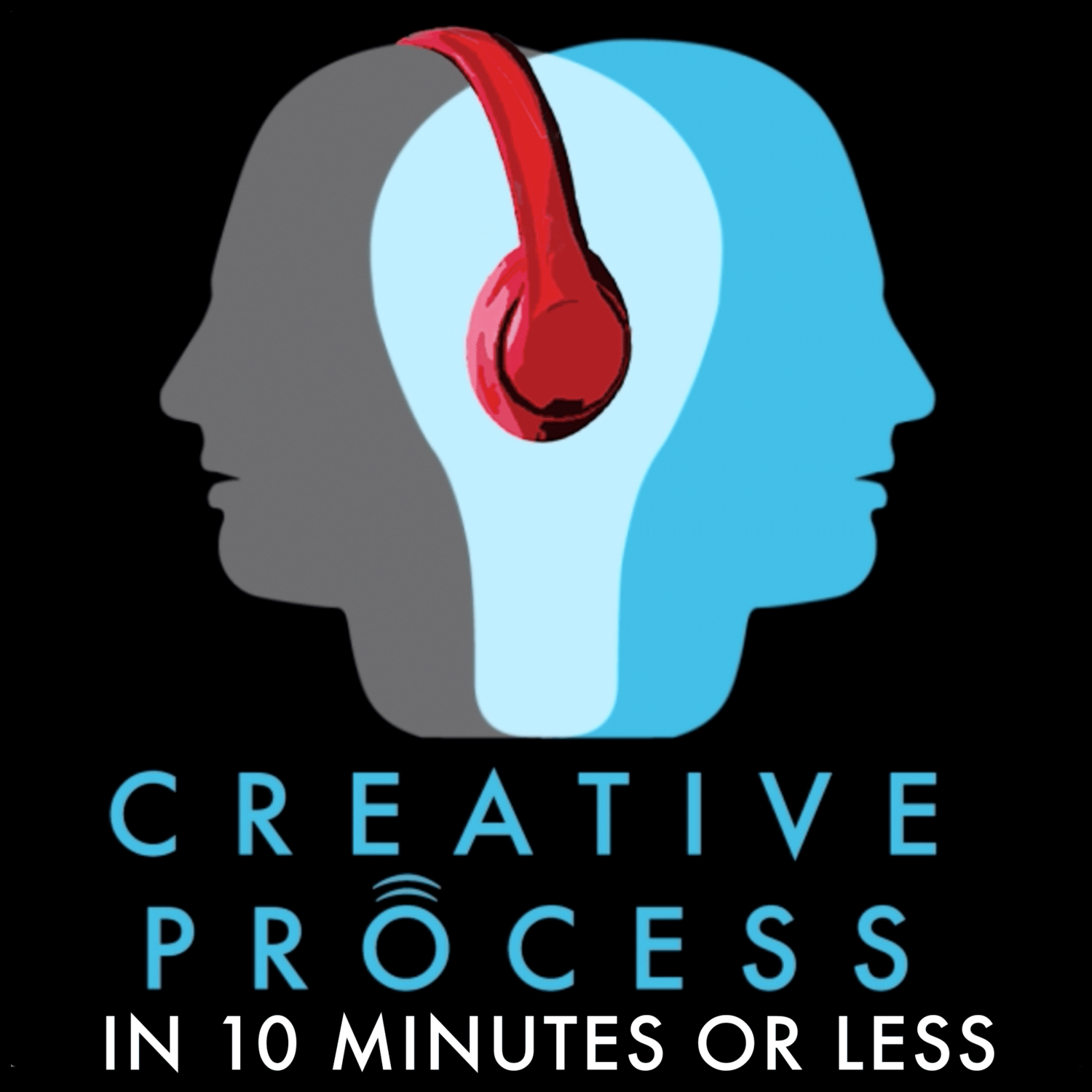
Arts
Education
The Creative Process · Books, Film, Music, TV, Art, Writing, Creativity, Education, Environment, Theatre, Dance, LGBTQ, Social Justice, Spirituality, Feminism, Technology...
Ten minute highlights of the popular The Creative Process & One Planet podcasts. Exploring the fascinating minds of creative people. Conversations with writers, artists & creative thinkers across the Arts & STEM. We discuss their life, work & artistic practice. Winners of Oscar, Emmy, Tony, Pulitzer, leaders & public figures share real experiences & offer valuable insights. Notable guests and participating museums and organizations include: Academy of Motion Picture Arts & Sciences, Neil Patrick Harris, Smithsonian, Roxane Gay, Musée Picasso, EARTHDAY-ORG, Neil Gaiman, UNESCO, Joyce Carol Oates, Mark Seliger, Acropolis Museum, Hilary Mantel, Songwriters Hall of Fame, George Saunders, The New Museum, Lemony Snicket, Pritzker Architecture Prize, Hans-Ulrich Obrist, Serpentine Galleries, Joe Mantegna, PETA, Greenpeace, EPA, Morgan Library & Museum, and many others.
The interviews are hosted by founder and creative educator Mia Funk with the participation of students, universities, and collaborators from around the world. These conversations are also part of our traveling exhibition.
www.creativeprocess.info
For full episodes, follow The Creative Process - Arts Culture & Society.

Connecting with the Earth: Changemakers, Scientists, Writers & Educators on Regenerating Earth’s Ecosystems
How and when will we transition to a clean energy future? How have wetlands become both crucial carbon sinks and colossal methane emitters in a warming world? What lessons can we learn from non-human animals about living in greater harmony with nature?Richard Black (Author of The Future of Energy · Fmr. BBC Environment Correspondent · Director of Policy & Strategy · Global Clean Energy Thinktank · Ember) addresses the substantial economic impact of fossil fuel subsidies, noting that the actual costs, when including climate change damages, reach up to six or seven trillion dollars annually, overshadowing the relatively small climate finance provided by Western governments.Euan Nisbet (Earth Systems Scientist · Royal Holloway University of London) explores the role of methane in the atmosphere, its historical importance in maintaining the planet’s temperature, and its current contribution to global warming. He explains the sources of methane, including natural processes and human activities, and discusses recent trends and challenges tied to rising methane levels.Julie Pierce (Vice President of Strategy & Planning · Minnesota Power) highlights her company's significant strides in sustainability. She outlines Minnesota Power's decade-long journey towards decarbonization, noting that they have transitioned from a 95% fossil-based portfolio to sourcing 50-60% of their energy from clean sources, including wind, solar, and hydropower.Arash Abizadeh (Professor of Political Science · McGill University Author ofHobbes and the Two Faces of Ethics · Associate Editor · Free & Equal) reflects on the future we are leaving for the next generations. He underscores the social and political challenges of ensuring that the technologies and resources needed to adapt to climate change are distributed equitably across all societies.Daniel Susskind(Economist · Oxford & King’s College London · Author of Growth: A Reckoning · A World Without Work) discusses the critical role of technological progress in driving economic growth. He advocates for a shift toward technologies that not only enhance prosperity but also protect the environment and promote social equity.Ian Robertson(Author of How Confidence Works: The New Science of Self-belief · Co-Director of the Global Brain Health Institute · Co-Leader of The BrainHealth Project) calls for young people to connect with nature and develop mastery over their minds. He envisions a future where individuals can access the joy of being conscious, embodied beings in a healthy, natural world.Ingrid Newkirk(Founder & President of PETA · People for the Ethical Treatment of Animals) emphasizes the shared traits between humans and other animals, advocating for a compassionate approach to all living beings. She urges listeners to recognize the personhood in animals and to treat them with respect and empathy.This episode brings together diverse voices discussing critical environmental and ethical issues. From the economic burden of fossil fuel subsidies to the equitable distribution of climate adaptation resources, the importance of technological progress, and the need for the ethical treatment of animals.To hear more from each guest, listen to their full interviews.www.creativeprocess.infowww.oneplanetpodcast.orgIG www.instagram.com/creativeprocesspodcast
11:3802/11/2024

The Pathway to Flow with Neuroscientist, Fmr. Dancer DR. JULIA CHRISTENSEN
"The state of being in flow and seeking out that state, sort of disappearing from the here and now... it must have been something that has been part of human cultures for many millennia. We know that, for example, dancing can bring you into these states. And we know from many anthropological works that people dance themselves into trance, a type of flow. So, there is that flow in this scientific sense of a state of well-being. And we will speak about what that does to our brain and our broader wellbeing, but also the flow in what cues enter into our senses. So that would be a scientific field that looks at brain synchrony, physiology synchrony, these waves that we see that sort of connect with us.”Dr. Julia F. Christensen is a Danish neuroscientist and former dancer currently working as a senior scientist at the Max Planck Institute for Empirical Aesthetics in Germany. She studied psychology, human evolution, and neuroscience in France, Spain and the UK. For her postdoctoral training, she worked in international, interdisciplinary research labs at University College London, City, University London and the Warburg Institute, London and was awarded a postdoctoral Newton International Fellowship by the British Academy. Her new book The Pathway to Flow is about the science of flow, why our brain needs it and how to create the right habits in our brain to get it.https://www.linkedin.com/in/dr-julia-f-christensen-36539a144https://www.instagram.com/dr.julia.f.christensen?igsh=cHZkODgxczJqZmxlwww.creativeprocess.infowww.oneplanetpodcast.orgIG www.instagram.com/creativeprocesspodcast
16:5229/10/2024
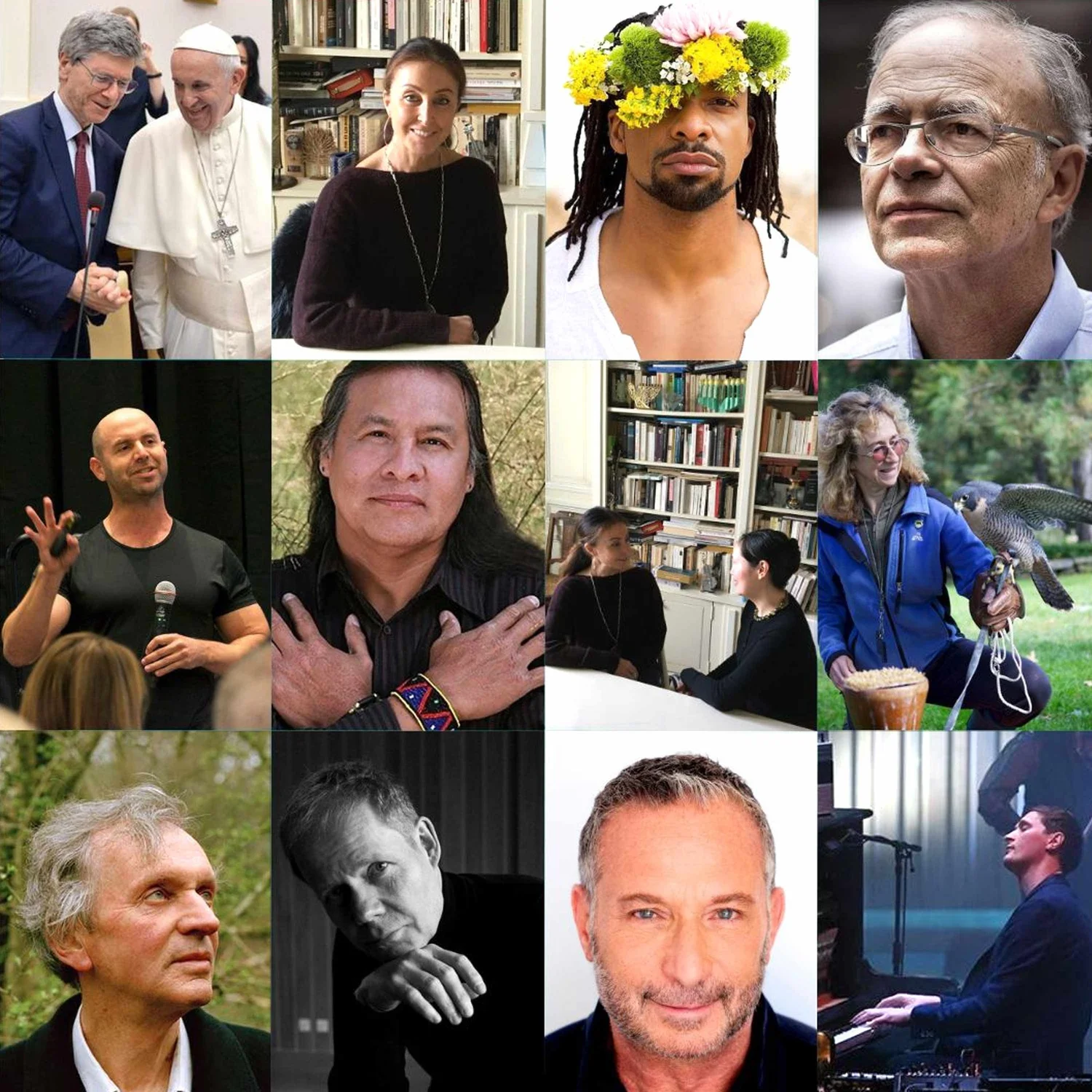
What Does It Mean to Live a Good Life? Artists, Writers, Visionaries & Educators Share their Stories
What does it mean to live a good life? How can the arts help us learn to speak the language of the Earth and cultivate our intuitive intelligence? What is the power of mentorship for forging character and creative vision? How can we hold onto our cultural heritage and traditions, while preparing students for the needs of the 21st century?Alan Poul (Emmy & Golden Globe-winning Executive Producer · Director · Six Feet Under · Tales of the City · Tokyo Vice · My So-Called Life) shares his personal journey and the importance of mentorship in shaping one's creative path. He discusses his experiences with influential figures such as Stephen Sondheim, Paul Schrader, and Robert Wilson, emphasizing the value of learning from those you admire.Rupert Sheldrake (Biologist · Author of The Science Delusion · The Presence of the Past · Ways to Go Beyond and Why They Work) explores the significance of cultural and religious traditions in education. He argues that knowing the open questions in science, integrating arts, and learning by heart are crucial for a well-rounded education.Jericho Brown (Pulitzer Prize-winning Poet · Director of Creative Writing Program at Emory University · Author of The Tradition · The New Testament) emphasizes the power and agency that young writers have to create change. He encourages persistence and the importance of trying, despite the fear of failure.Sy Montgomery (Naturalist · Author of The Soul of an Octopus · The Hawk’s Way · Of Time and Turtles: Mending the World, Shell by Shattered Shell) reflects on how animals have been her mentors and teachers. From her Scottish Terrier, Molly, to wild emus in Australia, she shares how her interactions with animals have guided her career and life choices.Manuela Lucá-Dazio (Exec. Director of the Pritzker Architecture Prize · Fmr. Exec. Director of Venice Biennale · Dept. of Visual Arts & Architecture) discusses the necessity of reconnecting with cultural heritage and expanding educational tools. She advocates for a more imaginative approach to integrating different fields of knowledge and teaching methods.Jeffrey D. Sachs (Economist · President of UN Sustainable Development Solutions Network · Director of Center for Sustainable Development · Columbia University) highlights the global consensus on Sustainable Development Goals (SDGs) and the critical importance of education. He specifically advocates for SDG 4, which focuses on inclusive and equitable quality education for all.Todd B. Kashdan (Psychologist · APA Award-winning Author of The Art of Insubordination: How to Dissent and Defy Effectively · Curious? · The Upside of Your Dark Side · Leading Authority on Well-being, Curiosity, Courage & Resilience) analyzes the shortcomings of the current education system. He stresses the need to teach critical thinking and develop superior information-gathering strategies.Tiokasin Ghosthorse (Founder · Host · Exec. Director of First Voices Radio · Founder of Akantu Intelligence · Master Musician of the Ancient Lakota Flute) offers a unique perspective on our connection to the Earth. He delves into Indigenous wisdom about living in harmony with nature, our ancestors, and recognizing the timeless energy around us.Erland Cooper (Songwriter · Producer · Multi-instrumentalist · Composer of Folded Landscapes) reminisces about his upbringing surrounded by nature and traditional folk music. He shares how these elements have influenced his work and creative process.Peter Singer (Philosopher · Author of Animal Liberation · Founder of The Life You Can Save) examines the core philosophical questions about living a good life. He discusses the principles of Effective Altruism and the importance of using our resources wisely to make the world a better place.To hear more from each guest, listen to their full interviews.www.creativeprocess.infowww.oneplanetpodcast.orgIG www.instagram.com/creativeprocesspodcast
15:1121/10/2024
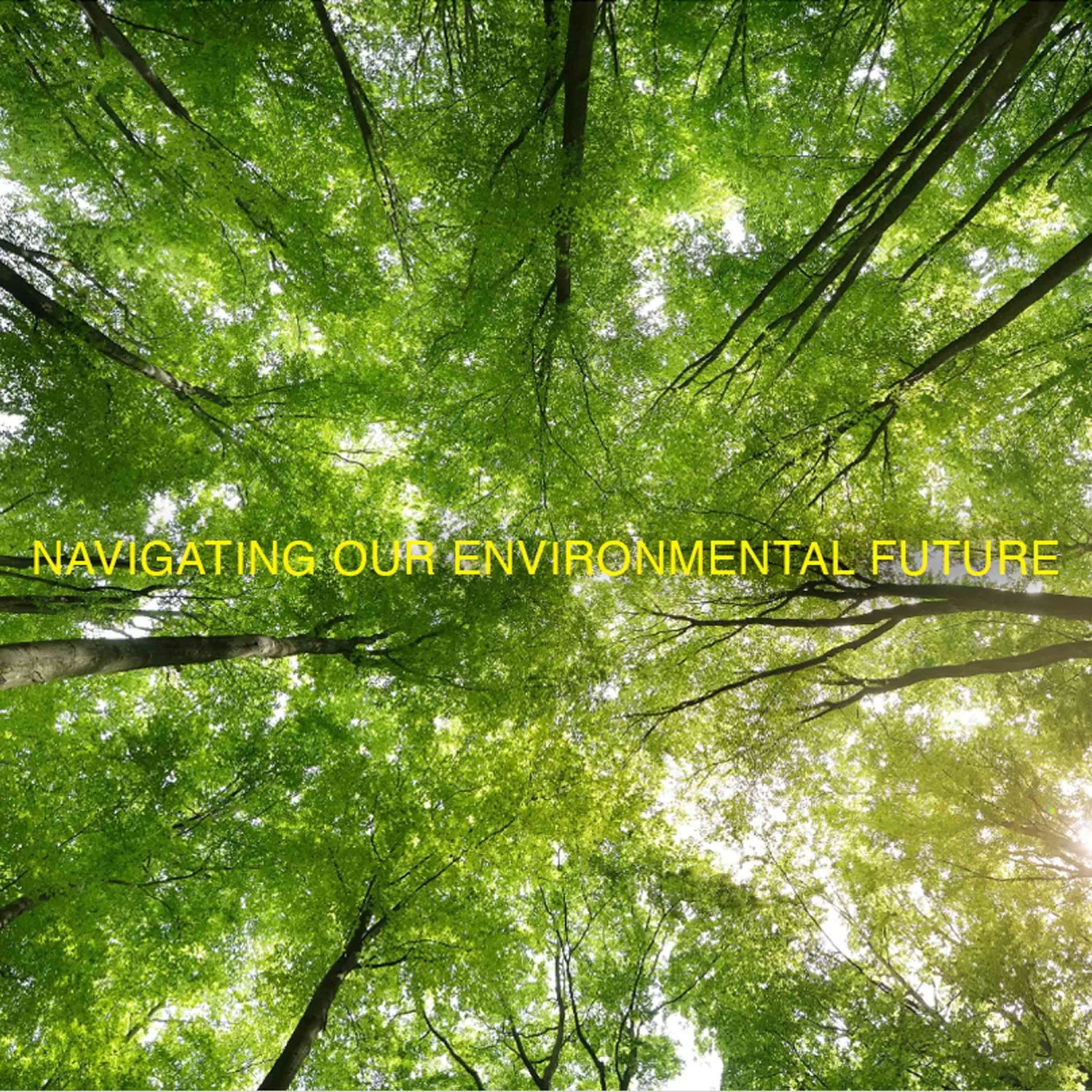
Navigating Our Environmental Future From Climate Crisis to Urban Revolution
Have we entered what Earth scientists call a “termination event,” and what can we do to avoid the worst outcomes? How can we look beyond GDP and develop new metrics that balance growth with human flourishing and environmental well-being? How can the 15-minute city model revolutionize urban living, enhance health, and reduce our carbon footprint?Euan Nisbet (Earth Systems Scientist - Royal Holloway University of London) analyzes historical patterns that point to a potential termination event and emphasizes the urgency of addressing abrupt climate changes.Daniel Susskind (Economist - Oxford & King’s College London - Author of Growth: A Reckoning - A World Without Work) discusses the economic trade-offs involved in pursuing net-zero emissions and the growing public discontent with the costs.Carlos Moreno (Originator of the 15-Minute City concept - Author of The 15-Minute City: A Solution to Saving Our Time & Our Planet) explores how the 15-minute city model can enhance urban living, promote local commerce, and reduce our carbon footprint.Richard Black (Author of The Future of Energy - Former BBC Environment Correspondent - Director of Policy & Strategy - Global Clean Energy Thinktank - Ember) explains the future energy landscape, critiques the contributions of oil and gas companies to the clean energy transition, and emphasizes the need for a realistic clean energy transition.Carissa Carter (Academic Director at Stanford's d.school - Co-author of Assembling Tomorrow: A Guide to Designing a Thriving Future) highlights the importance of people critically interpreting climate data and understanding its emotional impact.Gordon Lambert (World Economic Forum Global Council - Energy and Sustainability - Former Member of Alberta’s Climate Change Advisory Panel) shares his personal reflections on the harmony of nature and the necessity of aligning business strategies with renewable energy goals.Dr. Ben Shofty (Functional Neurosurgeon - Professor - University of Utah) discusses the health benefits of exposure to nature and its positive impact on well-being and creativity.Julia F. Christensen (Neuroscientist - Author of The Pathway To Flow: The New Science of Harnessing Creativity to Heal and Unwind the Body & Mind) explores the neuroscience behind human interaction with nature and its restorative effects on the brain.The episode examines critical issues surrounding climate change, economic growth, and urban development. Euan Nisbet highlighted the urgency of addressing abrupt climate changes, while Daniel Susskind shed light on the economic complexities of achieving net-zero emissions. Carlos Moreno presented the revolutionary concept of the 15-minute city, and Richard Black emphasized the need for a realistic clean energy transition. Carissa Carter underscored the importance of understanding and visualizing climate data, while Gordon Lambert, Dr. Julia F. Christensen, and Dr. Ben Shofty provided personal and scientific insights into the benefits of integrating nature into our lives. These conversations give us a deeper look into the challenges and potential solutions for creating a sustainable future.To hear more from each guest, listen to their full interviews.www.creativeprocess.infowww.oneplanetpodcast.orgIG www.instagram.com/creativeprocesspodcast
12:3118/10/2024

Democracy at a Crossroads: Exploring Modern Political Challenges w/ Philosopher ARASH ABIZADEH
“There is a tremendous tension between healthy democracy and deep economic inequalities. I don't think that, in the long run, democracies can survive in a healthy way unless we address the problem of economic inequalities. If we have individuals who are living day to day, on the one hand, and we have other individuals who are billionaires in our societies, on the other hand, it will be very difficult for us to have a genuine democracy.”Arash Abizadeh is the R.B. Angus Professor of Political Science at McGill University. His research has focused on democratic theory, including topics such as immigration and border control. Abizadeh also specializes in 17th and 18th century philosophy and has recently published the book Hobbes and the Two Faces of Ethics. He is currently working on a book about social and political power and is the Associate Editor of Free & Equal: a Journal of Ethics and Public Affairs.https://abizadeh.wixsite.com/arashwww.cambridge.org/core/books/hobbes-and-the-two-faces-of-ethics/B565348CE9B53945F4F962784A5842C2https://freeandequaljournal.orgwww.creativeprocess.infowww.oneplanetpodcast.orgIG www.instagram.com/creativeprocesspodcast
11:0811/10/2024
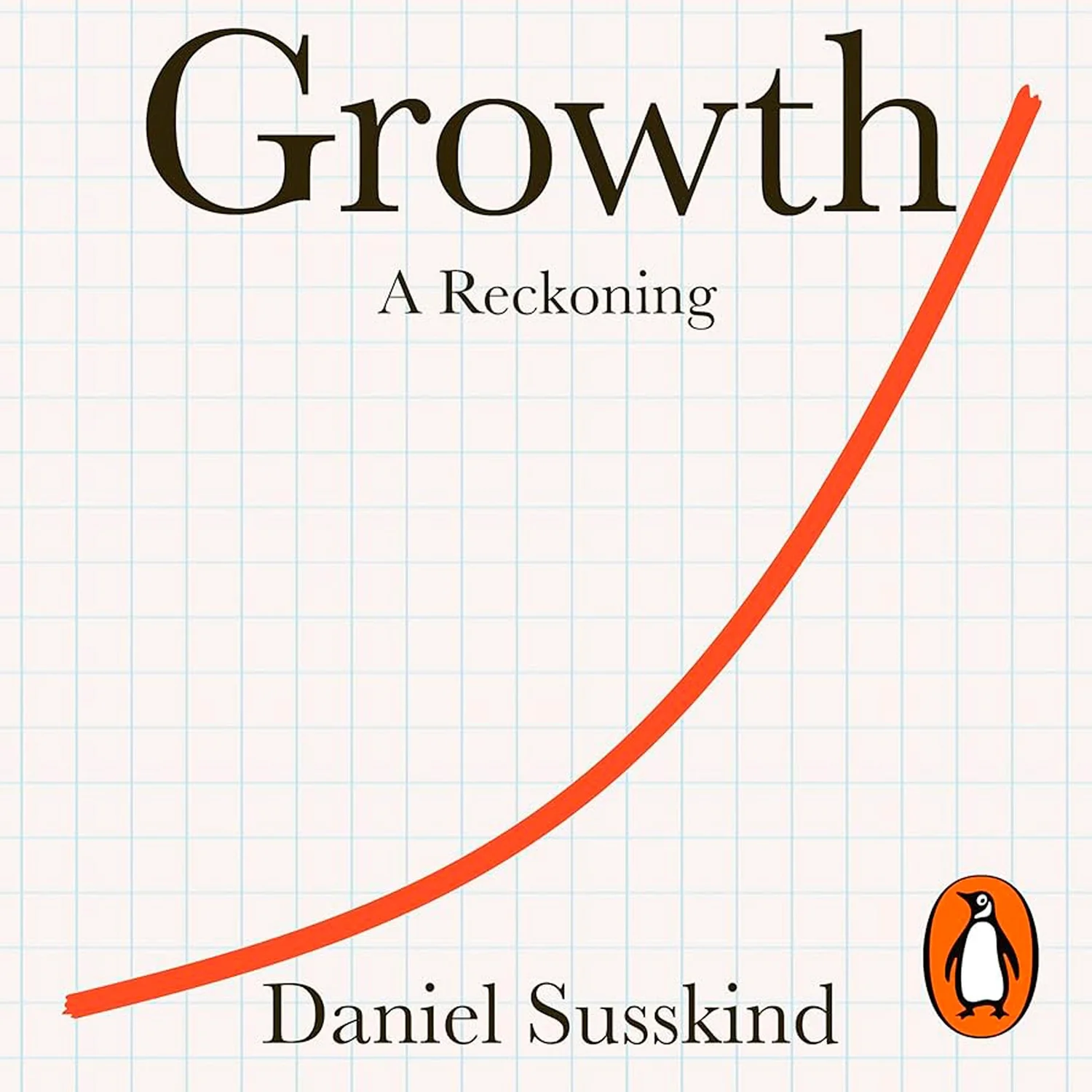
Growth: A Reckoning with Economist DANIEL SUSSKIND
“We have a choice to change the nature of growth. How we can have growth that is more respectful of place, doesn’t cause as much damage to the environment, doesn't lead to as large inequalities in society, doesn’t disrupt politics, doesn't undermine the availability of good work? We ought to pursue this morally enriched GDP measure which better reflects what we really value and care about as a society.”Daniel Susskind is a Research Professor in Economics at King's College London and a Senior Research Associate at the Institute for Ethics in AI at Oxford University. He is the author of A World without Work and co-author of the bestselling The Future of the Professions. Previously, he worked in various roles in the British Government - in the Prime Minister’s Strategy Unit, in the Policy Unit in 10 Downing Street, and in the Cabinet Office. His latest book is Growth: A Reckoning.www.danielsusskind.comwww.penguin.co.uk/books/446381/growth-by-susskind-daniel/9780241542309www.creativeprocess.infowww.oneplanetpodcast.orgIG www.instagram.com/creativeprocesspodcast
12:5904/10/2024

The 15-Minute City: A Solution to Saving Our Time & Our Planet with CARLOS MORENO
“It all starts at home. As a university professor, I have observed the process of transformation of different generations. We need to find a sense of life. We need to find a sense of belonging to our humanity, but to have this sense of life, we need to find a sense in our local communities.”Carlos Moreno was born in Colombia in 1959 and moved to France at the age of 20. He is known for his influential "15-Minute City" concept, embraced by Paris Mayor Anne Hidalgo and leading cities around the world. Scientific Director of the "Entrepreneurship - Territory - Innovation" Chair at the Paris Sorbonne Business School, he is an international expert of the Human Smart City, and a Knight of the French Legion of Honour. He is recipient of the Obel Award and the UN-Habitat Scroll of Honour. His latest book is The 15-Minute City: A Solution to Saving Our Time and Our Planet.https://www.moreno-web.net/https://www.wiley.com/en-us/The+15-Minute+City%3A+A+Solution+to+Saving+Our+Time+and+Our+Planet-p-9781394228140www.creativeprocess.infowww.oneplanetpodcast.orgIG www.instagram.com/creativeprocesspodcast
14:2203/10/2024

The Neuroscience of Creativity with DR. BEN SHOFTY
“When you think about the evolution of the human brain–just like other animals that have specialized in speed or keeping warm or gathering food–I feel our brain sort of specialized being creative and flexible and being able to generate different solutions to a given problem. To me, this is probably the most fascinating thought process that happens in the human brain. And what I do in neurosurgery–and my subspecialty is called functional neurosurgery–we don't deal with disorders in which there's an anatomical abnormality inside the brain. We deal with disorders in which there is an abnormal connection or abnormal circuitry inside the brain when there's an issue with the way the brain functions. There's no tumor. There are no abnormal blood vessels or anything like that. And that gives us an amazing opportunity to really investigate how different circuits and different areas inside the brain work.In terms of the more elusive processes like creativity or high-order cognitive functions, we don't really know or understand where they are inside the brain. As you said, there's no creativity cortex, like we have a motor cortex, sensory cortex, or visual cortex.When we started with this series of projects, we tried to think, if this function just like other higher cognitive functions, cannot be explained by a specific area inside the brain, then what happens? Where does the magic happen? And the answer was that it's a network-dependent function. It doesn't originate from a specific area inside the brain, but it originates from multiple brain networks sort of all of a sudden synchronizing to generate that unexpected function.”Dr. Ben Shofty is a functional neurosurgeon affiliated with the University of Utah. He graduated from the Tel-Aviv University Faculty of Medicine, received his PhD in neurosurgical training from the Israeli Institute of Technology, and completed his training at the Tel Aviv Medical Center and Baylor University. He was also an Israeli national rugby player. His practice specializes in neuromodulation and exploring treatments for disorders such as OCD, depression, and epilepsy, among others, while also seeking to understand the science behind creativity, mind-wandering, and the many complexities of the brain.https://healthcare.utah.edu/find-a-doctor/ben-shoftyhttps://academic.oup.com/brain/advance-article/doi/10.1093/brain/awae199/7695856www.creativeprocess.infowww.oneplanetpodcast.orgIG www.instagram.com/creativeprocesspodcast
17:3427/09/2024

Assembling Tomorrow: A Guide to Designing a Thriving Future - SCOTT DOORLEY & CARISSA CARTER - Directors of Stanford’s d.School
“Today, someone is putting the finishing touches on a machine- learning algorithm that will change the way you relate to your family. Someone is trying to design a way to communicate with animals in their own language. Someone is designing a gene that alters bacteria to turn your poop bright blue when it’s time to see the doctor. Someone is cleaning up the mess someone else left behind seventy years ago yesterday. Today, someone just had an idea that will end up saving one thing while it harms another…To be a maker in this moment— to be a human today— is to collaborate with the world. It is to create and be created, to work and be worked on, to make and be made. To be human is to tinker, create, fix, care, and bring new things into the world. It is to design. You— yes, you!— might design products or policy, services or sermons, production lines or preschool programs. You might run a business, make art, or participate in passing out meals to the poor. You may write code or pour concrete, lobby for endangered species legislation or craft cocktails. Wherever you fit in, you are part of shaping the world. This is design work.”– Assembling TomorrowA Guide to Designing a Thriving FutureScott Doorley is the Creative Director at Stanford's d. school and co author of Make Space. He teaches design communication and his work has been featured in museums and architecture and urbanism and the New York Times. Carissa Carteris the Academic Director at Stanford's d. schooland author of The Secret Language of Maps. She teaches courses on emerging technologies and data visualization and received Fast Company and Core 77 awards for her work on designing with machine learning and blockchain. Together, they co authored Assembling Tomorrow: A Guide to Designing a Thriving Future.www.scottdoorley.comwww.snowflyzone.comhttps://dschool.stanford.edu/www.penguinrandomhouse.com/books/623529/assembling-tomorrow-by-scott-doorley-carissa-carter-and-stanford-dschool-illustrations-by-armando-veve/www.creativeprocess.infowww.oneplanetpodcast.orgIG www.instagram.com/creativeprocesspodcast
21:0821/09/2024

How Can Museums Stay Relevant & Engage with Communities? - STEPHEN REILY
“The opportunity is that we have never had a public that is more passionate and obsessed with visual imagery. If the owners of the best original imagery in the world can't figure out how to take advantage of the fact that the world has now become obsessed with these treasures that we have to offer as museums, then shame on us. This is the opportunity to say, if you're spending all day scrolling on Instagram looking for amazing imagery, come and see the original source. Come and see the real work. Let us figure out how to make that connection.”Stephen Reily is the Founding Director of Remuseum, an independent research project housed at Crystal Bridges Museum of American Art in Bentonville, Arkansas. Funded by arts patron David Booth with additional support by the Ford Foundation, Remuseum focuses on advancing relevance and governance in museums across the U.S. He works with museums to create a financially sustainable strategy that is human-focused, centering on inclusion, diversity, and important causes like climate change. During his time as director of the Speed Art Museum in Louisville, KY, Reily presented Promise, Witness, Remembrance, an exhibition in response to the killing of Breonna Taylor and a year of protests in Louisville. In 2022, he co-wrote a book documenting the exhibition. As an active civic leader, Reily has been a part of numerous community organizations and boards, like the Reily Reentry Project, supporting expungement programs for Kentucky citizens, Creative Capital, offering grants for the arts, and founded Seed Capital Kentucky, a non-profit that aims to improve the food economy in the area.A Yale and Stanford Law graduate, Reily clerked for U.S. Supreme Court Justice John Paul Stevens before launching a successful entrepreneurial career, experiences he draws upon for public engagement initiatives.https://remuseum.orghttps://crystalbridges.orgwww.stephenreily.comwww.kentuckypress.com/9781734248517/promise-witness-remembrancewww.creativeprocess.infowww.oneplanetpodcast.orgIG www.instagram.com/creativeprocesspodcast
16:0611/09/2024

Curiosity, Cognition & Creativity with Neuroscientist DR. JACQUELINE GOTTLIEB
“I came to neuroscience from a humanistic perspective. I was very interested to find out who we are. What do we know? What do we think we know? Why do we think we know certain things? How do we see things? How do we perceive them? Ultimately, the question behind curiosity is what things we find interesting in our environment. The way I think about eye movements is that they really are trained in some largely subconscious process.”Dr. Jacqueline Gottlieb is a Professor of Neuroscience and Principal Investigator at Columbia University’s Zuckerman Mind Brain Behavior Institute. Dr. Gottlieb studies the mechanisms that underlie the brain's higher cognitive functions, including decision making, memory, and attention. Her interest is in how the brain gathers the evidence it needs—and ignores what it doesn’t—during everyday tasks and during special states such as curiosity.www.creativeprocess.infowww.oneplanetpodcast.orgIG www.instagram.com/creativeprocesspodcast
16:0004/09/2024

How Toxic Relationships Shape Us - MEAGHAN OPPENHEIMER - Tell Me Lies w/ Creator, Writer, Exec. Producer
“Often when people write or make movies about romances with young adults, I think they are very flippant about it and don't take it seriously. But I think that those friendships and romantic relationships are some of the most important ones because they really set the stage for the rest of our lives. If your first relationship is incredibly toxic and damaging, it can take you years to figure out that that's not normal, and that that's not actually how relationships are meant to be.”Meaghan Oppenheimer is a screenwriter, executive producer, and showrunner who tells stories driven by flawed, deeply human characters and the relationships between them. She’s behind Hulu’s drama series Tell Me Lies, starring Grace Van Patten and Jackson White and adapted from Carola Lovering’s novel of the same name. Her earlier projects include the 2015 film We Are Your Friends, starring Zac Efron as a passionate young DJ, and the 2018 drama series Queen America, set in Oppenheimer’s hometown of Tulsa, Oklahoma and starring Catherine Zeta-Jones. Season 2 of Tell Me Lies will premiere September 4th on Hulu. Oppenheimer is also currently developing the upcoming Hulu show Second Wife, to star Tom Ellis and Emma Roberts.www.creativeprocess.infowww.oneplanetpodcast.orgIG www.instagram.com/creativeprocesspodcast
18:0330/08/2024
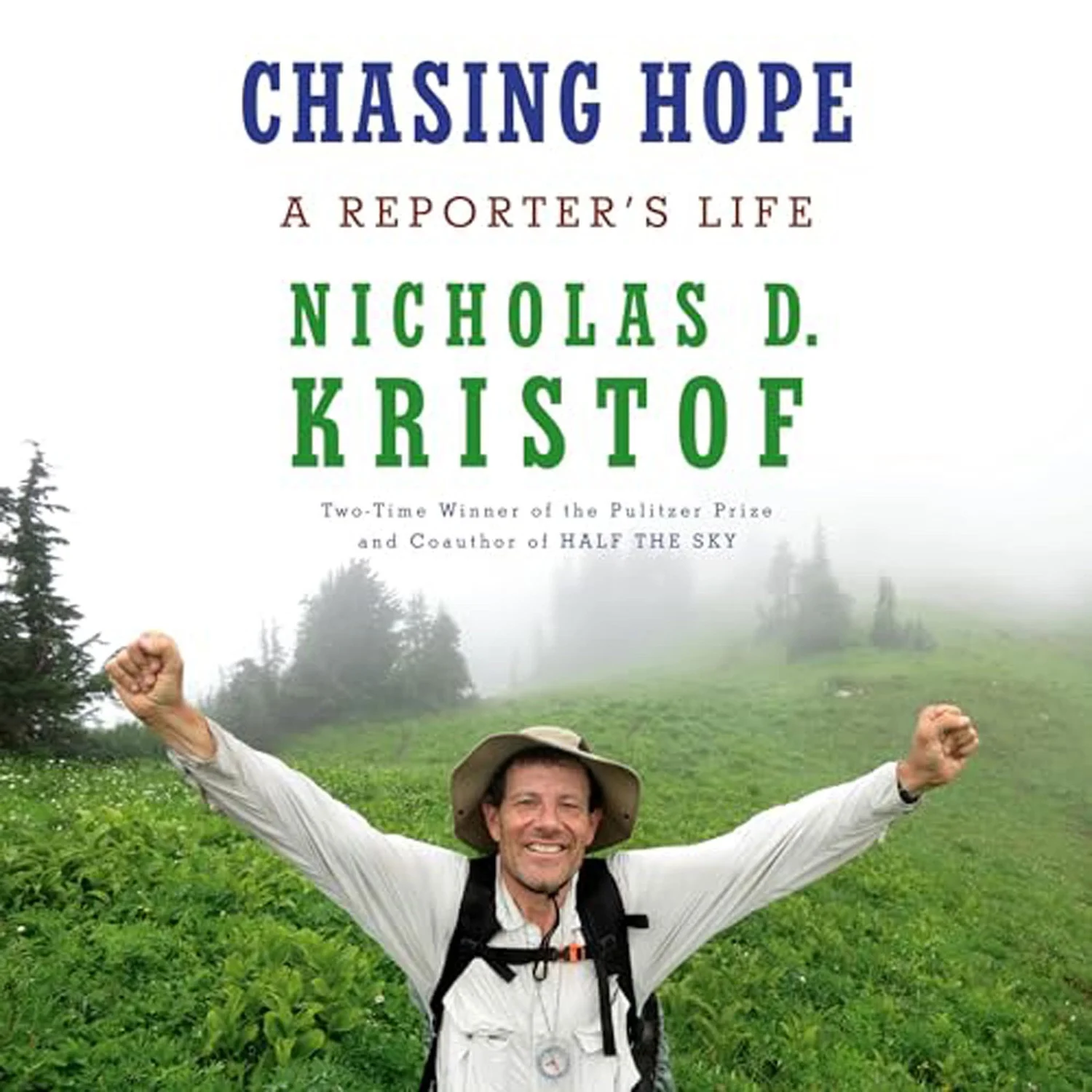
Chasing Hope: A Reporter's Life w/ Pulitzer Prize-winning Journalist NICHOLAS KRISTOF
"I'm trying to get people to care about a crisis in ways that may bring solutions to it. And that's also how I deal with the terror and the fear to find a sense of purpose in what I do. It's incredibly heartbreaking to see some of the things and hear some of the stories, but at the end of the day, it feels like–inconsistently here and there–you can shine a light on problems, and by shining that light, you actually make a difference."Nicholas D. Kristof is a two-time Pulitzer-winning journalist and Op-ed columnist for The New York Times, where he was previously bureau chief in Hong Kong, Beijing, and Tokyo. Kristof is a regular CNN contributor and has covered, among many other events and crises, the Tiananmen Square protests, the Darfur genocide, the Yemeni civil war, and the U.S. opioid crisis. He is the author of the memoir Chasing Hope, A Reporter's Life, and coauthor, with his wife, Sheryl WuDunn, of five previous books: Tightrope, A Path Appears, Half the Sky, Thunder from the East, and China Wakes.www.nytimes.com/column/nicholas-kristofwww.penguinrandomhouse.com/books/720814/chasing-hope-by-nicholas-d-kristofFamily vineyard & apple orchard in Yamhill, Oregon: www.kristoffarms.comwww.creativeprocess.infowww.oneplanetpodcast.orgIG www.instagram.com/creativeprocesspodcast
16:2626/08/2024

Germany's Postwar Legacy: Lessons for Today's Crises - FRANK TRENTMANN
“The bridge between Out of the Darkness and my previous work, which looked at the transformation of consumer culture in the world, is morality. One thing that became clear in writing Empire of Things was that there's virtually no time or place in history where consumption isn't heavily moralized. Our lifestyle is treated as a mirror of our virtue and sins. And in the course of modern history, there's been a remarkable moral shift in the way that consumption used to be seen as something that led you astray or undermined authority, status, gender roles, and wasted money, to a source of growth, a source of self, fashioning the way we create our own identity. In the last few years, the environmental crisis has led to new questions about whether consumption is good or bad. And in 2015, during the refugee crisis when Germany took in almost a million refugees, morality became a very powerful way in which Germans talked about themselves as humanitarian world champions, as one politician called it. I realized that there's many other topics from family, work, to saving the environment, and of course, with regard to the German responsibility for the Holocaust and the war of extermination where German public discourse is heavily moralistic, so I became interested in charting that historical process."What can we learn from Germany's postwar transformation to help us address today's environmental and humanitarian crises? With the rise of populism, authoritarianism, and digital propaganda, how can history provide insights into the challenges of modern democracy?Frank Trentmann is a Professor of History at Birkbeck, University of London, and at the University of Helsinki. He is a prize-winning historian, having received awards such as the Whitfield Prize, Austrian Wissenschaftsbuch/Science Book Prize, Humboldt Prize for Research, and the 2023 Bochum Historians' Award. He has also been named a Moore Scholar at Caltech. He is the author of Empire of Things and Free Trade Nation. His latest book is Out of the Darkness: The Germans 1942 to 2022, which explores Germany's transformation after the Second World War.www.bbk.ac.uk/our-staff/profile/8009279/frank-trentmannwww.penguin.co.uk/authors/32274/frank-trentmann?tab=penguin-bookswww.creativeprocess.infowww.oneplanetpodcast.orgIG www.instagram.com/creativeprocesspodcast
12:3414/08/2024

The Architecture of Oppression with JAKE FERGUSON, ANTHONY JOSEPH & JERMAIN JACKMAN
“I think as humans, we forget. We are often limited by our own stereotypes, and we don't see that in everyone there's the potential for beauty and love and all these things. And I think The Architecture of Oppression, both parts one and two, are really a reflection of all the community and civil rights work that I've been doing for the same amount of time, really - 25 years. And I wanted to try and mix my day job and my music side, so bringing those two sides of my life together. I wanted to create a platform for black artists, black singers, and poets who I really admire. Jermain is somebody I've worked with for probably about six, seven years now. He's also in the trenches of the black civil rights struggle. We worked together on a number of projects, but it was very interesting to then work with Jemain in a purely artistic capacity. And it was a no-brainer to give Anthony a call for this second album because I know of his pedigree, and he's much more able to put ideas and thoughts on paper than I would be able to.”Jake Ferguson is an award-winning musician known for his work with The Heliocentrics and as a solo artist under the name The Brkn Record. Alongside legendary drummer Malcolm Catto, Ferguson has composed two film scores and over 10 albums, collaborating with icons like Archie Shepp, Mulatu Astatke, and Melvin Van Peebles. His latest album is The Architecture of Oppression Part 2. The album also features singer and political activist Jermain Jackman, a former winner of The Voice (2014) and the T.S. Eliot Prize winning poet and musician, Anthony Joseph.www.creativeprocess.infowww.oneplanetpodcast.orgIG www.instagram.com/creativeprocesspodcast
14:5805/08/2024

The SDGs & UN Summit of the Future - GUILLAUME LAFORTUNE - VP, UN SDSN, Paris
“The SDSN has been set up to mobilize research and science for the Sustainable Development Goals. Each year, we aim to provide a fair and accurate assessment of countries' progress on the 17 Sustainable Development Goals. The development goals were adopted back in 2015 by all UN member states, marking the first time in human history that we have a common goal for the entire world. Our goal each year with the SDG index is to have sound methodologies and translate these into actionable insights that can generate impactful results at the end of the day. Out of all the targets that we track, only 16 percent are estimated to be on track. This agenda not only combines environmental development but also social development, economic development, and good governance. Currently, none of the SDGs are on track to be achieved at the global level.”In today's podcast, we talk with Guillaume Lafortune, Vice President and Head of the Paris Office of the UN Sustainable Development Solutions Network (SDSN), the largest global network of scientists and practitioners dedicated to implementing the Sustainable Development Goals (SDGs). We discuss the intersections of sustainability, global progress, the UN Summit of the Future, and the daunting challenges we face. From the impact of war on climate initiatives to transforming data into narratives that drive change, we explore how global cooperation, education, and technology pave the way for a sustainable future and look at the lessons of history and the power of diplomacy in shaping our path forward.Guillaume Lafortune joined SDSN in 2017 to lead work on SDG data, policies, and financing including the preparation of the annual Sustainable Development Report (which includes the SDG Index and Dashboards). Between 2020 and 2022 Guillaume was a member of The Lancet Commission on COVID-19, where he coordinated the taskforces on “Fiscal Policy and Financial Markets” and “Green Recovery”, and co-authored the final report of the Commission. Guillaume is also a member of the Grenoble Center for Economic Research (CREG) at the Grenoble Alpes University. Previously, he served as an economist at the OECD in Paris and at the Ministry of Economic Development in the Government of Quebec (Canada). Guillaume is the author of 50+ scientific publications, book chapters, policy briefs and international reports on sustainable development, economic policy and good governance.SDSN's Summit of the Future RecommendationsSDG Transformation CenterSDSN Global Commission for Urban SDG Financewww.creativeprocess.infowww.oneplanetpodcast.orgIG www.instagram.com/creativeprocesspodcast
15:0931/07/2024

How Do Utopian Visions Shape Our Reality & Future? - S. D. CHROSTOWSKA
“I like to think of utopianism as “effective social daydreaming” because utopia is associated with consciously imagining societies. Our imagination is always involved in creating reality. The opposition between the two, reality and the imaginary, is not a stark one; they're porous.”S. D. Chrostowska is professor of humanities at York University, Canada. She is the author of several books, among them Permission, The Eyelid, A Cage for Every Child, and, most recently, Utopia in the Age of Survival: Between Myth and Politics. Her essays have appeared in such venues as Public Culture, Telos, Boundary 2, and The Hedgehog Review. She also coedits the French surrealist review Alcheringa and is curator of the 19th International Exhibition of Surrealism, Marvellous Utopia, which runs from July to September 2024 in Saint-Cirq-Lapopie, France.https://profiles.laps.yorku.ca/profiles/sylwiac/www.sup.org/books/title/?id=33445https://chbooks.com/Books/T/The-Eyelidhttps://ciscm.fr/en/merveilleuse-utopiewww.creativeprocess.infowww.oneplanetpodcast.orgIG www.instagram.com/creativeprocesspodcast
20:4625/07/2024

The Mind, Climate Change & Community Resilience with CHARLIE HERTZOG YOUNG
“I've been a climate activist since I was about 12 years old. It began with a deep passion for wildlife. I started taking up litter and telling off my schoolmates, eventually I set up a green council when I was about 13 or 14. As I learned more and more about the climate crisis and how sprawling and interconnected it was, not just with nature, but with the oppression that exists within human society, I started getting more involved and impassioned, getting involved in protests, marches. When I was about 15 years old, I helped shut down an airport for a night. I eventually started going to the UN climate talks. I went to Davos and it started to become my everything. I felt like I was doing something meaningful about the crisis, but also felt a sense of deep despair and loss, both from the perspective of the impending collapse of the biosphere and also a deep dislocation from the dominant culture and the consensus reality. I felt like no one else was feeling the sense of urgency and emergency that I felt. I started to get incredibly anxious. In 2019, when I was 27, I jumped off a six storey building. My memory has blacked it out, but I spent a month in a coma and woke up having lost both of my legs. The five years since have been one of not just physical and mental recovery, but also trying to untangle the messy web of causality as to how and why it was that I lost my mind in the way I did. I try to find some of the gifts in that madness, what it was pointing towards in terms of the unbalance of the ecosphere and how human civilization has begun to operate completely out of step with the ecosphere.”Charlie Hertzog Young is a researcher, writer and award-winning activist. He identifies as a “proudly mad bipolar double amputee” and has worked for the New Economics Foundation, the Royal Society of Arts, the Good Law Project, the Four Day Week Campaign and the Centre for Progressive Change, as well as the UK Labour Party under three consecutive leaders. Charlie has spoken at the LSE, the UN and the World Economic Forum. He studied at Harvard, SOAS and Schumacher College and has written for The Ecologist, The Independent, Novara Media, Open Democracy and The Guardian. He is the author of Spinning Out: Climate Change, Mental Health and Fighting for a Better Future.https://charliehertzogyoung.mehttps://footnotepress.com/books/spinning-out/www.creativeprocess.infowww.oneplanetpodcast.orgIG www.instagram.com/creativeprocesspodcast
17:2819/07/2024
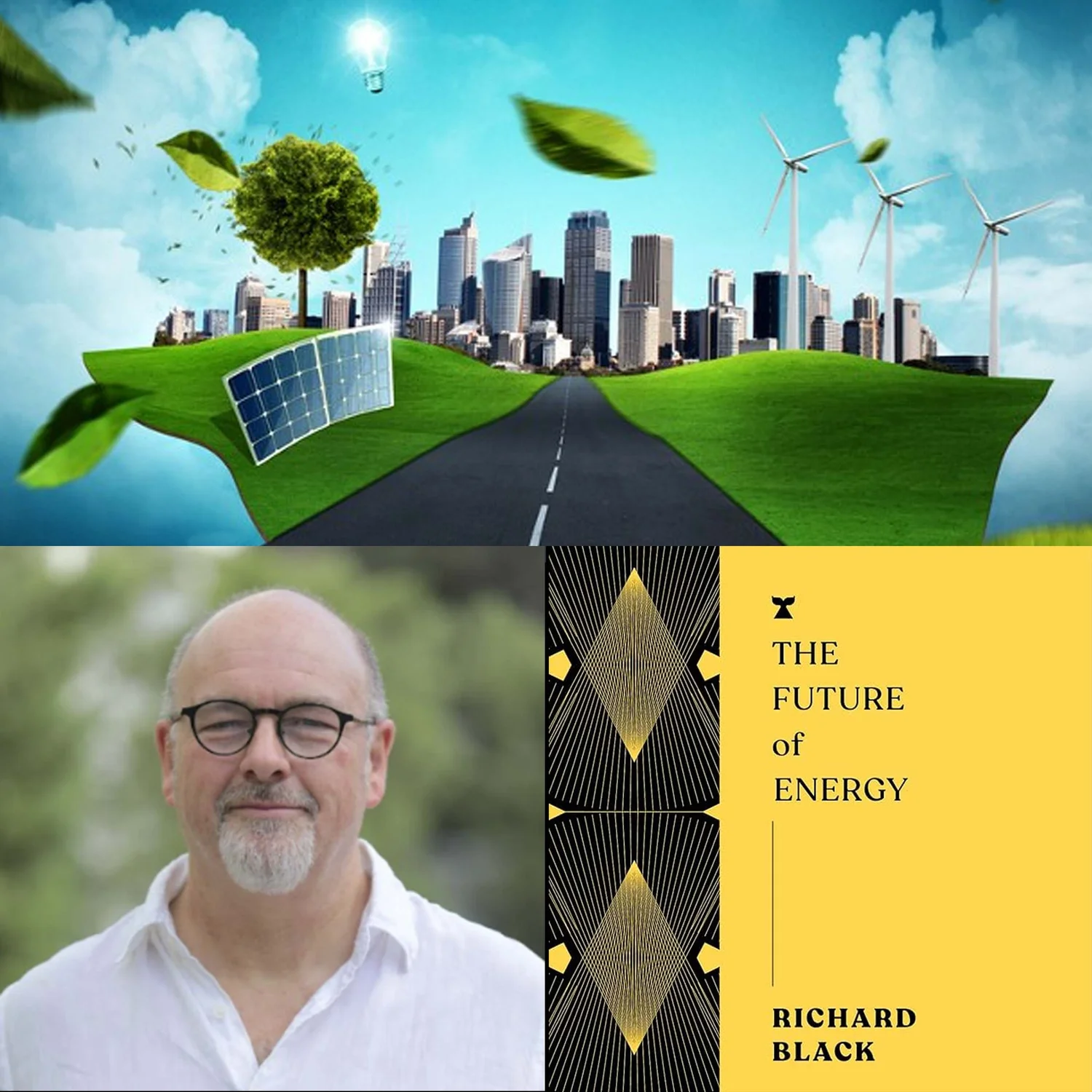
The Future of Energy - RICHARD BLACK - Director, Policy & Strategy, Ember - Fmr. BBC Environment Correspondent
“The fact is you've got a lot of industrial and political muscle now coming behind clean energy, especially from China, which is the leading country deploying wind energy, the leading country deploying solar, and the leading manufacturer and user of electric vehicles by miles. As one recent report put it, ‘We have petrostates in the world. China is the first electrostate.’ And China is on its way to becoming the world's most powerful country. So, where China leads, the rest of the world is almost certain to follow. Yes, there are massive air pollution problems in China, of course, but I think it's more than that. It's also about seeing that this is the future that the world is going to have. And if these goods are going to be made anywhere, well, the Chinese government clearly would like them to be made in China. And they've set out, you know, industrial policies and all kinds of other policies for, well, at least a decade now, in pursuit of that aim. It's interesting now to see other countries, India, for example, and the United States now sort of deploying muscle to try and carve out a slice of the pie themselves as well.”The Five-pronged Clean Energy Future“I thought about it, and I was wondering, what do we actually need in the world? Because we don't need petrol and we don't need coal. We need energy to power various things. So, we need these energy services. So, what's the simplest way of providing all of the energy services? And it really seems to me that we can basically do it all with about five different types of goods. So the system of the future I put out in the book is first of all, you have the generation of electricity, which is mainly going to be with renewables, mainly with wind and solar because they are the cheapest and they're getting cheaper thanks to Wright's Law. Then you need energy storage and other means of sharing matching demand to supply. So, storage is the one that people will be most familiar with, which can be batteries, for example. And again, the price of batteries has also plummeted about 85 percent price reduction in a decade. And it continues because, again, we have mounting volumes. In a competitive market, there's lots of innovation going on in terms of battery design, in terms of construction, and all of this stuff, new materials coming into batteries. So, that's your first two, that's your renewable generation and your battery storage. Electric vehicles will be the main method of transportation. Already, they dominate sales in the two-wheeler market in China and India. They're already eating into global oil demand. They're taking about 1.5 percent of global oil demand already, and the sales are increasing exponentially in China and other countries as well. They are cost-competitive. It's just on the purchase price in some markets with some models now. And it's going to get cheaper again because battery costs will fall. Heating and cooling, which is a big demand for energy. We can use heat pumps, which are super efficient running on electricity…Hydrogen, that will probably be the fifth prong, but a smaller prong, rather like the little finger on your hand."Richard Black spent 15 years as a science and environment correspondent for the BBC World Service and BBC News, before setting up the Energy & Climate Intelligence Unit. He now lives in Berlin and is the Director of Policy and Strategy at the global clean energy think tank Ember, which aims to accelerate the clean energy transition with data and policy. He is the author of The Future of Energy; Denied:The Rise and Fall of Climate Contrarianism, and is an Honorary Research Fellow at Imperial College London.https://mhpbooks.com/books/the-future-of-energyhttps://ember-climate.org/about/people/richard-blackhttps://ember-climate.orgwww.therealpress.co.uk/?s=Richard+blackwww.creativeprocess.infowww.oneplanetpodcast.orgIG www.instagram.com/creativeprocesspodcast
13:0213/07/2024

DIANE VON FÜRSTENBERG: Woman in Charge w/ Oscar-winning Director SHARMEEN OBAID-CHINOY
“As a filmmaker, I've always made films about extraordinary women whose lives are faced with extenuating circumstances who've had adversity thrown at them and who've risen to the occasion. And when I began to look at Diane's story, for me, Diane is a fashion designer, but she's so much more. Her central ethos is woman before fashion, and we felt it was very important to take that ethos and weave it into the spine of our film, and make it about the woman.In making this film, every single person who we called whose voice we wanted to include wanted to contribute. They wanted to say something about Diane, because she had left such a mark on their lives. Our producers’ jobs, Tracy and Fabiola, was to juggle those schedules. How do you juggle the schedule of secretary Hillary Clinton with Oprah Winfrey? How do you make sure that Anderson Cooper and Mark Jacobs, you know, in the filming time that we had, that we could put all of these people together? But Diane's friendships run deep with people, and people made sure to make time.You know, she was a single mother, and I think that young single mothers watching this film will feel for Diane, especially single mothers who are trying to be entrepreneurs, and creating businesses, and trying to find their way into the world to be able to raise a family. To do that as an immigrant in a new country is challenging, and Diane shows you just how challenging it is. In making choices about living her life, in being with her children or expanding her business, there were sacrifices that were made, and those sacrifices are boldly put on the screen for viewers to watch.”Sharmeen Obaid-Chinoy is an Oscar and Emmy award-winning Canadian-Pakistani filmmaker whose work highlights extraordinary women and their stories. She earned her first Academy Award in 2012 for her documentary Saving Face, about the Pakistani women targeted by brutal acid attacks. Today, Obaid-Chinoy is the first female film director to have won two Oscars by the age of 37. In 2023, it was announced that Obaid-Chinoy will direct the next Star Wars film starring Daisy Ridley. Her most recent project, co-directed alongside Trish Dalton, is the new documentary Diane von Fürstenberg: Woman in Charge, about the trailblazing Belgian fashion designer who invented the wrap dress 50 years ago. The film had its world premiere as the opening night selection at the 2024 Tribeca Festival on June 5th and premiered on June 25th on Hulu in the U.S. and Disney+ internationally. A product of Obaid-Chinoy's incredibly talented female filmmaking team, Woman in Charge provides an intimate look into Diane von Fürstenberg’s life and accomplishments and chronicles the trajectory of her signature dress from an innovative fashion statement to a powerful symbol of feminism.www.hulu.com/movie/diane-von-furstenberg-woman-in-charge-95fb421e-b7b1-4bfc-9bbf-ea666dba0b02https://www.disneyplus.com/movies/diane-von-furstenberg-woman-in-charge/1jrpX9AhsaJ6https://socfilms.comwww.creativeprocess.infowww.oneplanetpodcast.orgIG www.instagram.com/creativeprocesspodcast
10:2905/07/2024

Does AI-generated Perfection Detach Us from Reality, Life & Human Connection? with HENRY AJDER
“I would like to preserve a real sense of empathy and humility, which comes with understanding that the world is messy, that people are messy, that defects and imperfections exist, that things don't always necessarily kind of go the way you want, even as much as you wish they could. Imperfection is part of life and I guess my concern is that AI-generated content, which smooths and perfects a version of reality to precisely what you want and forces you or makes you feel pressured to represent yourself in this absolutely perfect way, fundamentally gives you no room for error and kind of detaches you from the reality of growth and life and and how people work. Empathize with other people. Everyone has their challenges. Things don't always have to be exactly perfect to how you want them to be or how other people want them to be. And that involves having some humility about yourself as a messy creature, as we all are. I hope that's retained, but I do see this kind of move towards this sort of smoothed and shaped reality that AI is enabling, potentially creating more of a disconnect between that imperfect, messy, but also quite beautiful world. This sort of polished but ultimately plastic version of reality increasingly is becoming the default for some people over the kind of fleshy, messy human side of things.”How is artificial intelligence redefining our perception of reality and truth? Can AI be creative? And how is it changing art and innovation? Does AI-generated perfection detach us from reality and genuine human connection?Henry Ajder is an advisor, speaker, and broadcaster working at the frontier of the generative AI and the synthetic media revolution. He advises organizations on the opportunities and challenges these technologies present, including Adobe, Meta, The European Commission, BBC, The Partnership on AI, and The House of Lords. Previously, Henry led Synthetic Futures, the first initiative dedicated to ethical generative AI and metaverse technologies, bringing together over 50 industry-leading organizations. Henry presented the BBC documentary series, The Future Will be Synthesised.www.henryajder.comwww.bbc.co.uk/programmes/m0017cgrwww.creativeprocess.infowww.oneplanetpodcast.orgIG www.instagram.com/creativeprocesspodcast
12:0929/06/2024

How to Fight for Truth & Protect Democracy in A Post-Truth World? - Highlights - LEE McINTYRE
“One thing people don't realize is that the goal of disinformation is not simply to get you to believe a falsehood. It's to demoralize you into giving up on the idea of truth, to polarize us around factual issues, to get us to distrust people who don't believe the same lie. And even if somebody doesn't believe the lie, it can still make them cynical. I mean, we've all had friends who don't even watch the news anymore. There's a chilling quotation from Holocaust historian Hannah Arendt about how when you always lie to someone, the consequence is not necessarily that they believe the lie, but that they begin to lose their critical faculties, that they begin to give up on the idea of truth, and so they can't judge for themselves what's true and what's false anymore. That's the scary part, the nexus between post-truth and autocracy. That's what the authoritarian wants. Not necessarily to get you to believe the lie. But to give up on truth, because when you give up on truth, then there's no blame, no accountability, and they can just assert their power. There's a connection between disinformation and denial.”Lee McIntyre is a Research Fellow at the Center for Philosophy and History of Science at Boston University and a Senior Advisor for Public Trust in Science at the Aspen Institute. He holds a B.A. from Wesleyan University and a Ph.D. in Philosophy from the University of Michigan. He has taught philosophy at Colgate University, Boston University, Tufts Experimental College, Simmons College, and Harvard Extension School (where he received the Dean’s Letter of Commendation for Distinguished Teaching). Formerly Executive Director of the Institute for Quantitative Social Science at Harvard University, he has also served as a policy advisor to the Executive Dean of the Faculty of Arts and Sciences at Harvard and as Associate Editor in the Research Department of the Federal Reserve Bank of Boston. His books include On Disinformation and How to Talk to a Science Denier and the novels The Art of Good and Evil and The Sin Eater.https://leemcintyrebooks.comwww.penguinrandomhouse.com/books/730833/on-disinformation-by-lee-mcintyrehttps://mitpress.mit.edu/9780262545051/https://leemcintyrebooks.com/books/the-art-of-good-and-evil/https://leemcintyrebooks.com/books/the-sin-eater/www.creativeprocess.infowww.oneplanetpodcast.orgIG www.instagram.com/creativeprocesspodcast
12:1119/06/2024

How will AI Affect Education, the Arts & Society? - Highlights - STEPHEN WOLFRAM
“I think as there is more automation, there is more kind of emphasis on this question of our choice. The story of the development of things tends to be what do humans decide that they care about? In what direction do they want to go? What kind of art do they want to make? What kinds of things do they want to think about? There is in the computational universe of all possibilities, there is sort of infinite creativity. There's an infinite collection of possibilities, but it's something that's a matter of human choice, which of these infinite things do we actually choose to pursue? There's all these different possibilities out there. But our kind of challenge is to decide in which direction we want to go and then to let our automated systems pursue those particular directions.”Stephen Wolfram is a computer scientist, mathematician, and theoretical physicist. He is the founder and CEO of Wolfram Research, the creator of Mathematica, Wolfram|Alpha, and the Wolfram Language. He received his PhD in theoretical physics at Caltech by the age of 20 and in 1981, became the youngest recipient of a MacArthur Fellowship. Wolfram authored A New Kind of Science and launched the Wolfram Physics Project. He has pioneered computational thinking and has been responsible for many discoveries, inventions and innovations in science, technology and business.www.stephenwolfram.comwww.wolfram.comwww.wolframalpha.comwww.wolframscience.com/nks/www.amazon.com/dp/1579550088/ref=nosim?tag=turingmachi08-20www.wolframphysics.orgwww.wolfram-media.com/products/what-is-chatgpt-doing-and-why-does-it-work/www.creativeprocess.infowww.oneplanetpodcast.orgIG www.instagram.com/creativeprocesspodcast
00:0018/06/2024

Can we have real conversations with AI? How do illusions help us make sense of the world? - KEITH FRANKISH
“There is magic everywhere. There's wonder everywhere. There's wondrous complexity that is so complex, so difficult to conceptualize, to grasp, to articulate that it might as well be magic for all intents and purposes, but we can gradually start to unpick how the tricks are done, how nature learned to do these wonderful tricks. And that's the wonder of science, gradually learning what's happening behind the scenes and how these marvelous effects are produced.I'm probably best known for my work on consciousness. My view about this is often caricatured, I think, as a kind of heartless, materialist one, because I'm resistant to all forms of dualism about the mind. I think that's a very unhelpful way of thinking.Some people think that I do that because I have a sort of crass materialist attitude to the world, that there's only things you can measure and weigh and bump into and everything else is just nonsense and fancy and different. What I like about the sort of view I have is that it represents us as fully part of the world, fully part of the same world. We're not sealed off into little private mental bubbles, Cartesian theaters, where all the real action is happening in here, not out there. No, I think we're much more engaged with the world… Another one of my heroes is Daniel Dennett's great friend, Nicholas Humphrey, who has a wonderfully rich range of experience. He's been described as a scientific humanist. What he does is he knows his science, including cognitive neuroscience and psychology, but he's also steeped in literature, art, music, and painting, and he brings all this together in his wonderful book on consciousness Soul Dust, published in 2011, suggests the idea that the soul is actually made of dust, which is a fantastic concept.”Keith Frankish is an Honorary Professor of Philosophy at the University of Sheffield, a Visiting Research Fellow with The Open University, and an Adjunct Professor with the Brain and Mind Programme in Neurosciences at the University of Crete. Frankish mainly works in the philosophy of mind and has published widely about topics such as human consciousness and cognition. Profoundly inspired by Daniel Dennett, Frankish is best known for defending an “illusionist” view of consciousness. He is also editor of Illusionism as a Theory of Consciousness and co-edits, in addition to others, The Cambridge Handbook of Cognitive Science.www.keithfrankish.comwww.cambridge.org/core/books/cambridge-handbook-of-cognitive-science/F9996E61AF5E8C0B096EBFED57596B42www.imprint.co.uk/product/illusionismwww.creativeprocess.infowww.oneplanetpodcast.orgIG www.instagram.com/creativeprocesspodcast
11:1110/06/2024

How Can We End the Climate Crisis in One Generation? - PAUL HAWKEN
“We and all living beings thrive by being actors in the planet’s regeneration, a civilizational goal that should commence and never cease. We practiced degeneration as a species and it brought us to the threshold of an unimaginable crisis. To reverse global warming, we need to reverse global degeneration.”Can we really end the climate crisis in one generation? What kind of bold collective action, technologies, and nature-based solutions would it take to do it?Paul Hawken is a renowned environmentalist, entrepreneur, author, and activist committed to sustainability and transforming the business-environment relationship. A leading voice in the environmental movement, he has founded successful eco-friendly businesses, authored influential works on commerce and ecology, and advised global leaders on economic and environmental policies. As the founder of Project Regeneration and Project Drawdown, Paul leads efforts to identify and model solutions to reverse global warming, showcasing actionable strategies. His pioneering work in corporate ecological reform continues to shape a sustainable future. He is the author of eight books, including Regeneration: Ending the Climate Crisis in One Generation.https://regeneration.orghttps://paulhawken.comhttps://drawdown.orghttps://regeneration.org/nexuswww.creativeprocess.infowww.oneplanetpodcast.orgIG www.instagram.com/creativeprocesspodcast
16:5607/06/2024
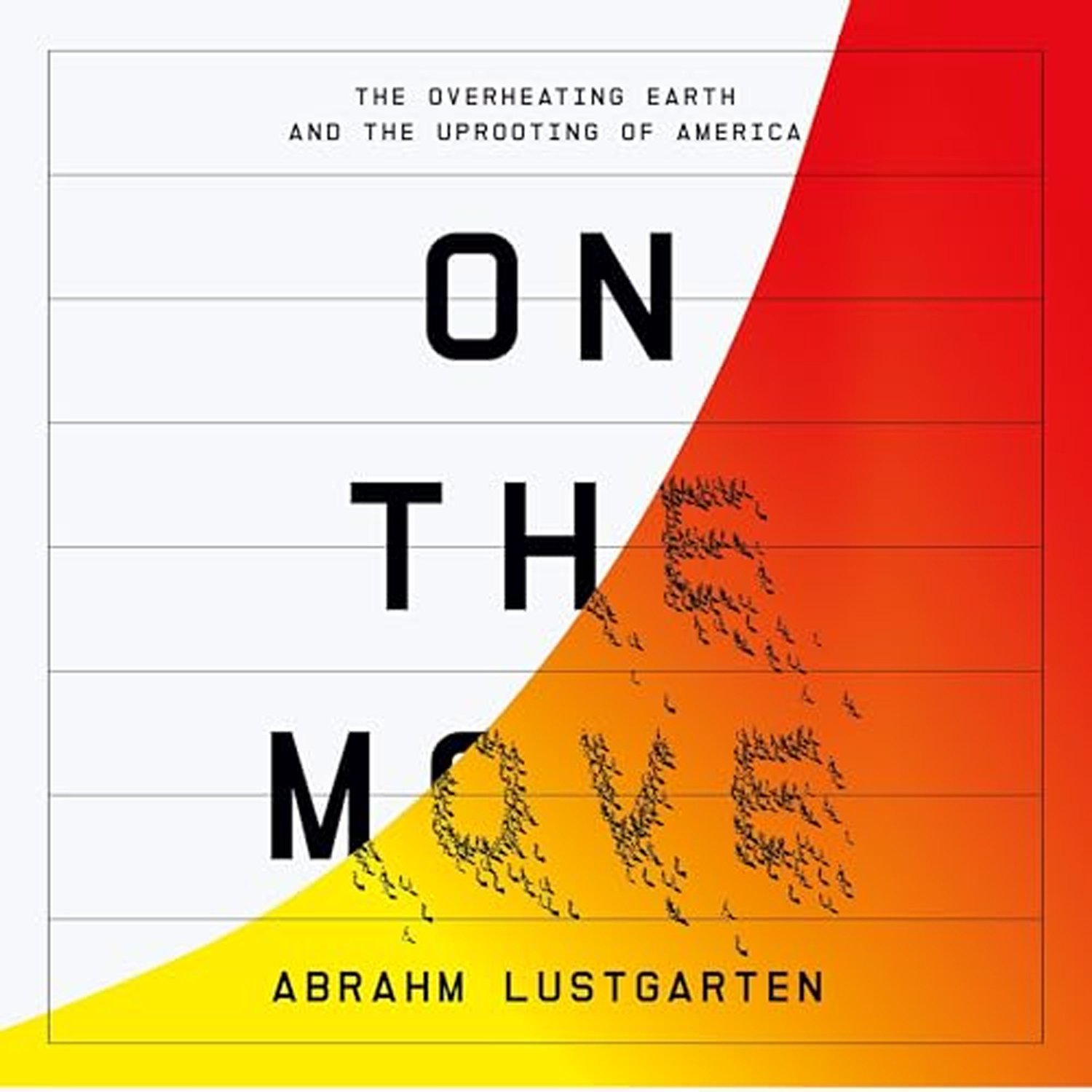
On The Move: The Overheating Earth & the Uprooting of America with ABRAHM LUSTGARTEN
“Living in California, I've just come to accept the unsettledness of this era we're moving into. And I think that's really how I see the future. You know, we're living in an era of disruption, and there are others I talk to and write about in the book who also muse about the possibility of a more nomadic future. That maybe home isn't a permanent place with deep roots but is a transient place with shallow roots or two places that you alternate between. In addition to a lot of other dramatic changes that the book is about, a change in our sense of home and our sense of place is a part of this story.”Abrahm Lustgarten is an investigative reporter, author, and filmmaker whose work focuses on human adaptation to climate change. His 2010 Frontline documentary The Spill, which investigated BP’s company culture, was nominated for an Emmy. His 2015 longform series Killing the Colorado, about the draining of the Colorado river, was nominated for a Pulitzer Prize. Lustgarten is a senior reporter at ProPublica, and contributes to publications like The New York Times Magazine and The Atlantic. His research on climate migration influenced President Biden’s creation of a climate migration study group. This is also the topic of his newly published book, On The Move: The Overheating Earth and the Uprooting of America in which he explores how climate change is uprooting American lives.https://abrahm.comhttps://us.macmillan.com/books/9780374171735/onthemovewww.creativeprocess.infowww.oneplanetpodcast.orgIG www.instagram.com/creativeprocesspodcast
15:4131/05/2024

Exploring the Sensory World of Autism, ADHD & Non-Binary Artists with MATTIA MAURÉE
“One of the things I think about a lot is this. I vividly remember the desire throughout pretty much most of my twenties and certainly my teen years to be a famous artist and win big awards. And when you dig down into what you actually want from that, it's connection. The teen brain, in particular, is extremely geared toward connection and gets different brain chemical payouts for different things than adults. So certainly, when I think of like teenagers, I think of that drive for connection and fitting in and being accepted is so strong. And that was a part of my artistic output or desire as well was like, okay, if I write, you know, something world-changing, like then it could be like a really well-regarded composer and get that respect. Or if I go more of the songwriting and film route, I can be beloved or have people love my music and have this emotional experience with my music. There were all these dreams that I had that I think largely boiled down to just wanting to be accepted. And you can get that outside of your career and outside of the arts.”How can we learn to flourish because of who we are, not in spite of it? What is the sensory experience of the world for people with autism and ADHD? How can music help heal trauma and foster identity?Mattia Maurée is an interdisciplinary composer whose work centers around themes of perception, body, sensation, trauma, and resilience. Their scores for critically acclaimed films have been played in 13 countries. Their poems have been featured in Boston City Hall as part of the Mayor's Poetry Program, Guerrilla Opera, and Arc Poetry Magazine. Mattia composes and performs on violin, voice, and piano, and has taught music for over 20 years. They have received a Master's of Music in Composition at New England Conservatory and a Bachelor's of Music from St. Olaf College. They also are an AUDHD coach, host the AuDHD Flourishing podcast and help other neurodivergent folks heal and find their creative flow in their course Love Your Brain.http://mattiamauree.comhttps://studio.com/mattiahttps://mattiamauree.com/love-your-brainhttps://www.audhdflourishing.com/hellowww.creativeprocess.infowww.oneplanetpodcast.orgIG www.instagram.com/creativeprocesspodcast
11:2429/05/2024
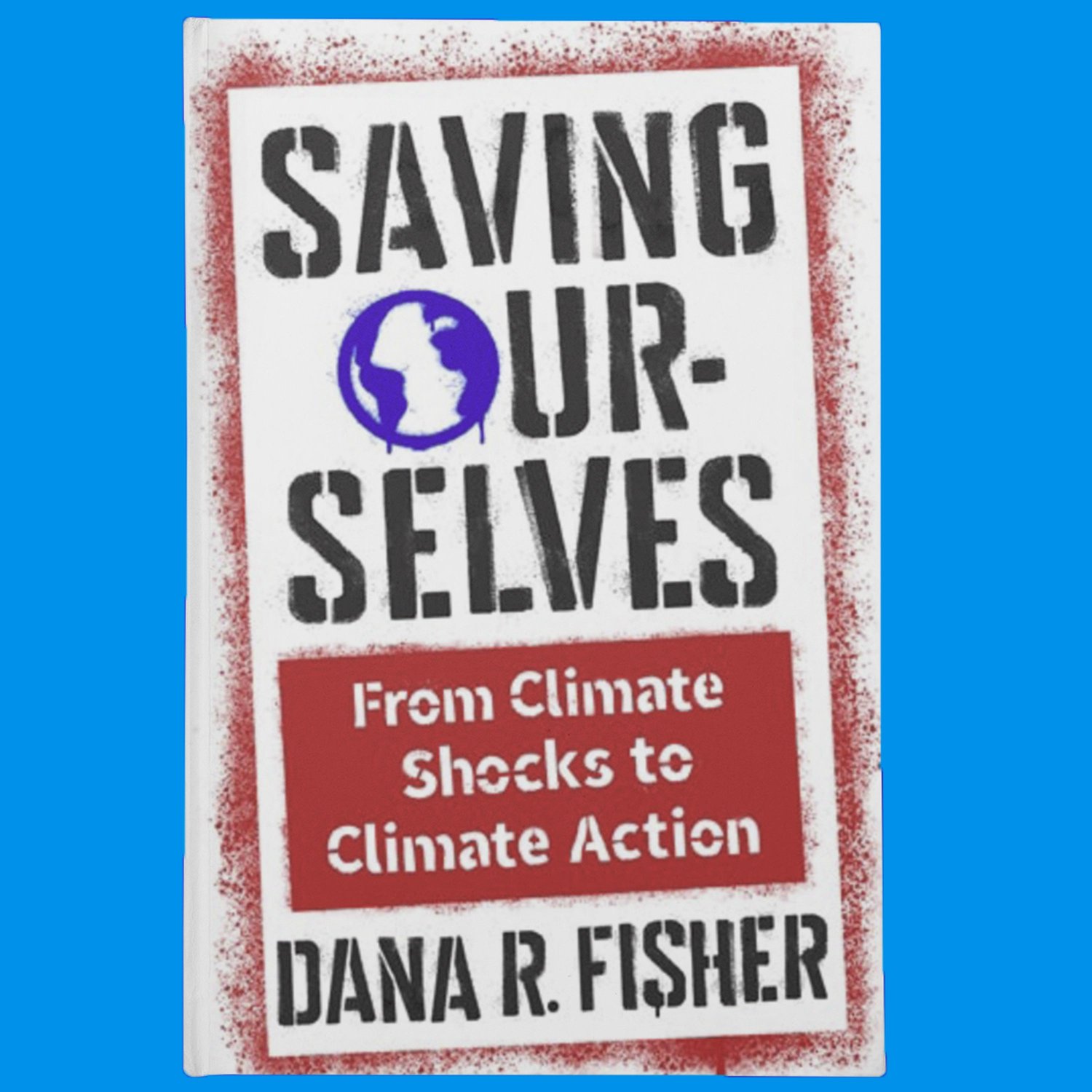
Saving Ourselves: From Climate Shocks to Climate Action - DANA FISHER
“I call myself an apocalyptic optimist. In other words, I do believe there is hope to save ourselves from the climate crisis that we have caused. However, I also believe that saving ourselves will only be possible with a mass mobilization that is driven by the pain and suffering of climate shocks around the world. A generalized sense of extreme risk can lead to peaceful and less-peaceful mass mobilizations at the levels needed to stimulate an AnthroShift. Only a global risk event (or numerous smaller events that are seen as threatening social and economic centers of power) will motivate the kind of massive social change that is needed. In other words, without a risk pivot—be it driven by social or environmental change—an AnthroShift that is large enough to respond adequately to the climate crisis and open a large enough window of opportunity postshock is improbable. At this point, it is impossible to predict if such a shock will come from ecological disaster, war, pandemic, or another unforeseen risk. What is certain, though, is that without such a shock that motivates an AnthroShift large enough to reorient all the sectors of society to respond meaningfully to the climate crisis, it is hard to envision the world achieving the levels of climate action needed. Instead, the best we can hope for is incremental change that does not disrupt the dominant nodes of political and economic power; such incremental change has the potential to reduce the gravity of the crisis, but it will not stop the coming climate crisis.”– Saving Ourselves: From Climate Shocks to Climate ActionDana R. Fisher is the Director of the Center for Environment, Community, & Equity and Professor in the School of International Service at American University. Fisher’s research focuses on questions related to democracy, civic engagement, activism, and climate politics. Current projects include studying political elites’ responses to climate change, and the ways federal service corps programs in the US are integrating climate into their work. She is a self-described climate-apocalyptic optimist and co-developed the framework of AnthroShift to explain how social actors are reconfigured in the aftermath of widespread perceptions and experiences of risk. Her seventh book is Saving Ourselves: From Climate Shocks to Climate Action.https://danarfisher.comhttps://cece.american.eduwww.acc.govwww.creativeprocess.infowww.oneplanetpodcast.orgIG www.instagram.com/creativeprocesspodcast
14:4424/05/2024

How can Regenerative Business Help Heal the Earth? - ESHA CHHABRA
“There’s a lot of greenwashing that's going on these days. It is great marketing. And that was really the reason why I wrote this book. I had started to see the patterns. You can start to tell them the companies that are genuinely doing it versus the companies that are just talking about it. So that was one indicator, you know, a company that would send out a press release about their goals and what they anticipated to do in the next 5 to 10 years was very different from companies who had said, you know what, this is what we've achieved. Regenerative started coming into the lexicon, the term in 2017, 2018. And regenerative means to regenerate, means to bring life into something. To sustain means to keep the status quo. And regenerative looks at things from a very holistic lens. You know, it's like if you're going to run a regenerative farm, it's all the different components of the farm and the ecosystem ideally come within the ecosystem.”Esha Chhabra has written for national and international publications over the last 15 years, focusing on global development, the environment, and the intersection of business and impact. Her work has been featured in The New York Times, The Economist, The Guardian, and other publications. She is the author of Working to Restore: Harnessing the Power of Business to Heal the Earth.www.eshachhabra.comwww.beacon.org/Working-to-Restore-P2081.aspxwww.creativeprocess.infowww.oneplanetpodcast.orgIG www.instagram.com/creativeprocesspodcast
14:2620/05/2024
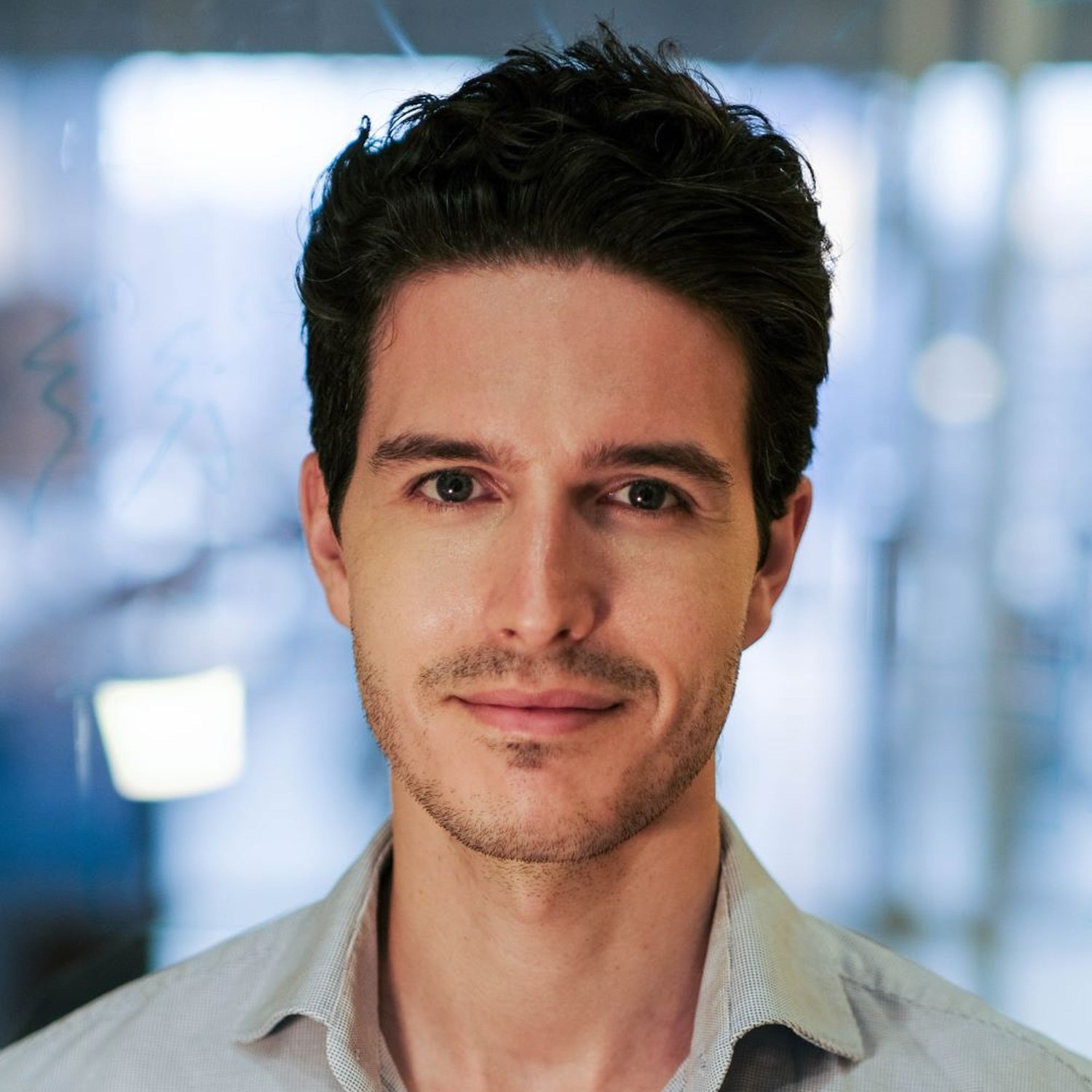
How can we ensure that AI is aligned with human values? - RAPHAËL MILLIÈRE
How can we ensure that AI is aligned with human values? What can AI teach us about human cognition and creativity?Dr. Raphaël Millière is Assistant Professor in Philosophy of AI at Macquarie University in Sydney, Australia. His research primarily explores the theoretical foundations and inner workings of AI systems based on deep learning, such as large language models. He investigates whether these systems can exhibit human-like cognitive capacities, drawing on theories and methods from cognitive science. He is also interested in how insights from studying AI might shed new light on human cognition. Ultimately, his work aims to advance our understanding of both artificial and natural intelligence.“I'd like to focus more on the immediate harms that the kinds of AI technologies we have today might pose. With language models, the kind of technology that powers ChatGPT and other chatbots, there are harms that might result from regular use of these systems, and then there are harms that might result from malicious use. Regular use would be how you and I might use ChatGPT and other chatbots to do ordinary things. There is a concern that these systems might reproduce and amplify, for example, racist or sexist biases, or spread misinformation. These systems are known to, as researchers put it, “hallucinate” in some cases, making up facts or false citations. And then there are the harms from malicious use, which might result from some bad actors using the systems for nefarious purposes. That would include disinformation on a mass scale. You could imagine a bad actor using language models to automate the creation of fake news and propaganda to try to manipulate voters, for example. And this takes us into the medium term future, because we're not quite there, but another concern would be language models providing dangerous, potentially illegal information that is not readily available on the internet for anyone to access. As they get better over time, there is a concern that in the wrong hands, these systems might become quite powerful weapons, at least indirectly, and so people have been trying to mitigate these potential harms.”https://raphaelmilliere.comhttps://researchers.mq.edu.au/en/persons/raphael-millierewww.creativeprocess.infowww.oneplanetpodcast.orgIG www.instagram.com/creativeprocesspodcast
10:2517/05/2024
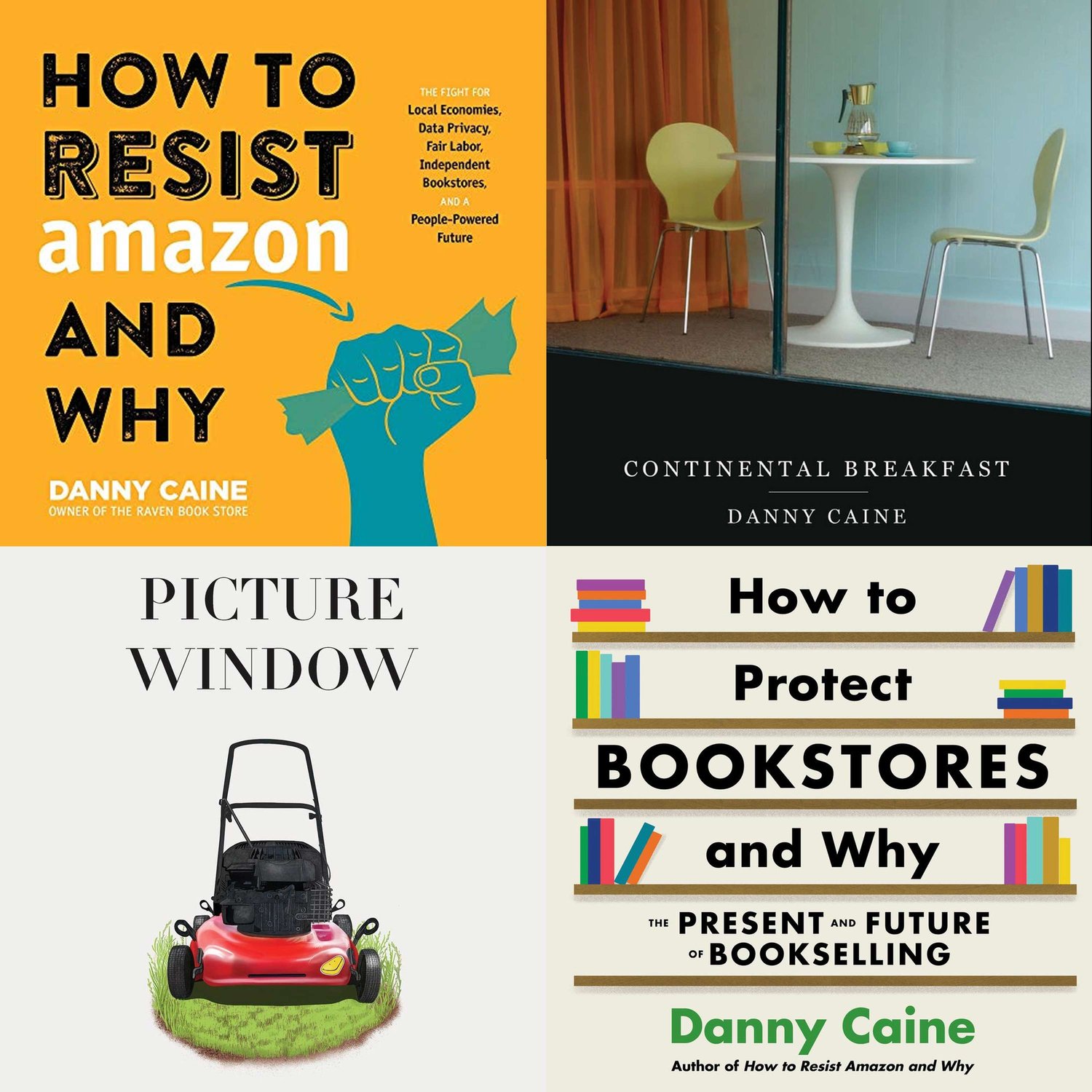
How to Protect Bookstores and Why - Highlights - DANNY CAINE, Bookseller, Poet
“Bookselling captured my imagination and my heart as soon as I started working at the bookstore because I could see the potential for this great, amazing community-oriented work. Of course, it's a thrill to be around books, to meet authors, to read all this stuff, and to spend all day with people who love books, but what I think I really fell in love with was the sense of community, the people behind it, and the way a bookstore can really be an engine for positive social change within its community and in a broader sense as well. My whole nonfiction book project started with a tweet thread. It was about how every bookseller has to be prepared to have this discussion: a customer comes in, and they're like, this book is 50 percent off on Amazon. Why should I buy it here? So, I don't think about it quite as withholding from Amazon as much as contributing to these local community-oriented businesses. The thing that unites my poetry and the nonfiction writing is my main obsession as a writer. It's the question of, how do you live meaningfully in late capitalism? As corporations and global capitalist forces take over the world, what does it mean to try to have a meaningful human life? I think the proliferation of objects might reflect that. A lot of what we do in this world is collect objects, and regardless of whether it's good or bad, you build a nest. I think that in Picture Window in particular, I wanted to write about the domestic in a way that I hadn't written in so far. And then the pandemic happened, so I was forced into this weird, uneasy, claustrophobic domesticity. When your attention is so focused within your own home and within your own family, every object in your house takes on a new resonance. So, when a tennis ball that you've never seen somehow shows up in your house, that's weird. It's poetic. It feels dreamlike.”Danny Caine is the author of the poetry collections Continental Breakfast, El Dorado Freddy's, Flavortown, and Picture Window, as well as the books How to Protect Bookstores and Why and How to Resist Amazon and Why. His poetry has appeared in The Slowdown, Lit Hub, Diagram, HAD, and Barrelhouse. He's a co-owner of The Raven Bookstore, Publisher's Weekly's 2022 Bookstore of the Year. www.dannycaine.com www.ravenbookstore.comwww.creativeprocess.infowww.oneplanetpodcast.orgIG www.instagram.com/creativeprocesspodcast
12:0417/05/2024
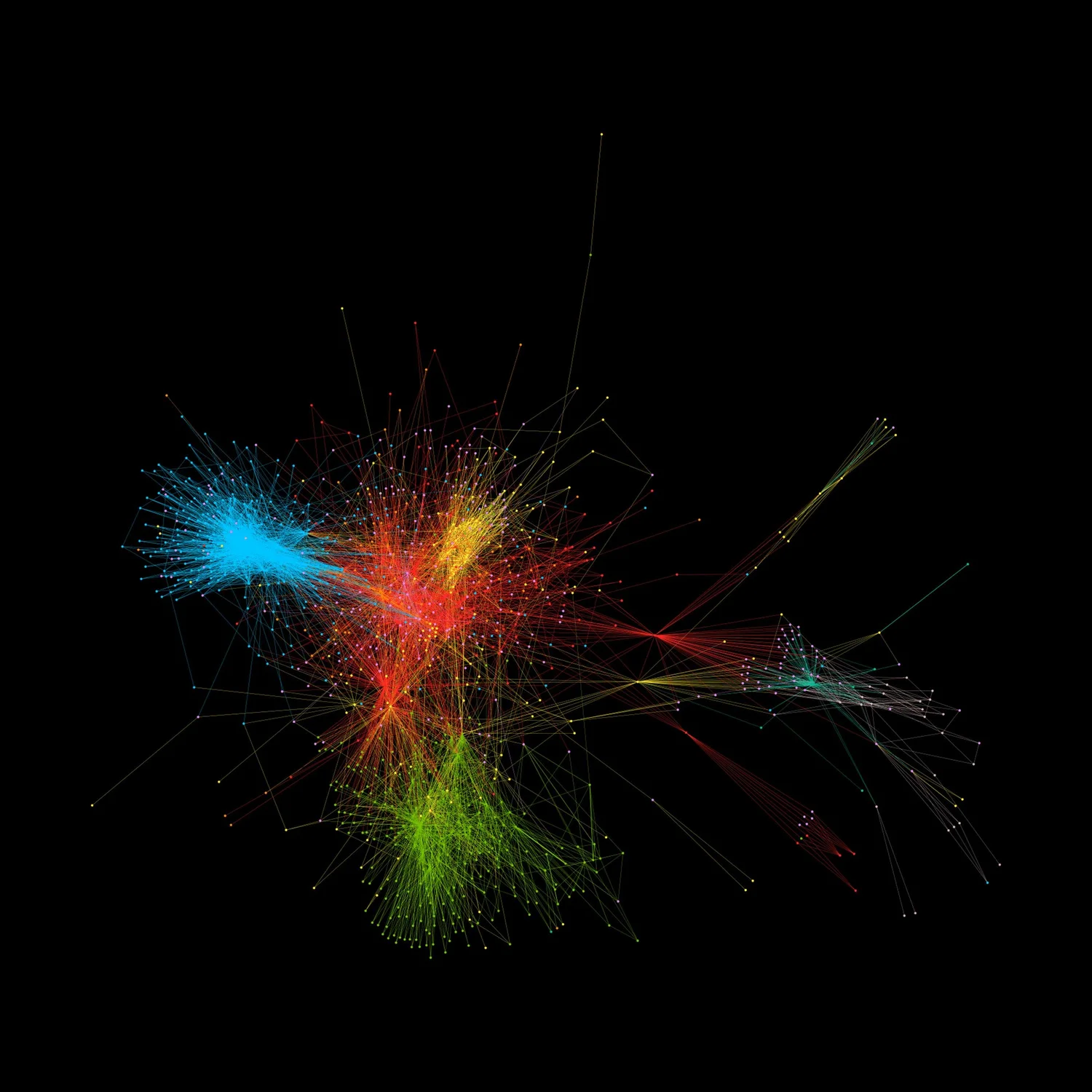
Is understanding AI a bigger question than understanding the origin of the universe? - NEIL JOHNSON
“It gets back to this core question. I just wish I was a young scientist going into this because that's the question to answer: Why AI comes out with what it does. That's the burning question. It's like it's bigger than the origin of the universe to me as a scientist, and here's the reason why. The origin of the universe, it happened. That's why we're here. It's almost like a historical question asking why it happened. The AI future is not a historical question. It's a now and future question.I'm a huge optimist for AI, actually. I see it as part of that process of climbing its own mountain. It could do wonders for so many areas of science, medicine. When the car came out, the car initially is a disaster. But you fast forward, and it was the key to so many advances in society. I think it's exactly the same as AI. The big challenge is to understand why it works. AI existed for years, but it was useless. Nothing useful, nothing useful, nothing useful. And then maybe last year or something, now it's really useful. There seemed to be some kind of jump in its ability, almost like a shock wave. We're trying to develop an understanding of how AI operates in terms of these shockwave jumps. Revealing how AI works will help society understand what it can and can't do and therefore remove some of this dark fear of being taken over. If you don't understand how AI works, how can you govern it? To get effective governance, you need to understand how AI works because otherwise you don't know what you're going to regulate.”How can physics help solve messy, real world problems? How can we embrace the possibilities of AI while limiting existential risk and abuse by bad actors?Neil Johnson is a physics professor at George Washington University. His new initiative in Complexity and Data Science at the Dynamic Online Networks Lab combines cross-disciplinary fundamental research with data science to attack complex real-world problems. His research interests lie in the broad area of Complex Systems and ‘many-body’ out-of-equilibrium systems of collections of objects, ranging from crowds of particles to crowds of people and from environments as distinct as quantum information processing in nanostructures to the online world of collective behavior on social media. https://physics.columbian.gwu.edu/neil-johnson https://donlab.columbian.gwu.eduwww.creativeprocess.infowww.oneplanetpodcast.org IG www.instagram.com/creativeprocesspodcast
15:3814/05/2024
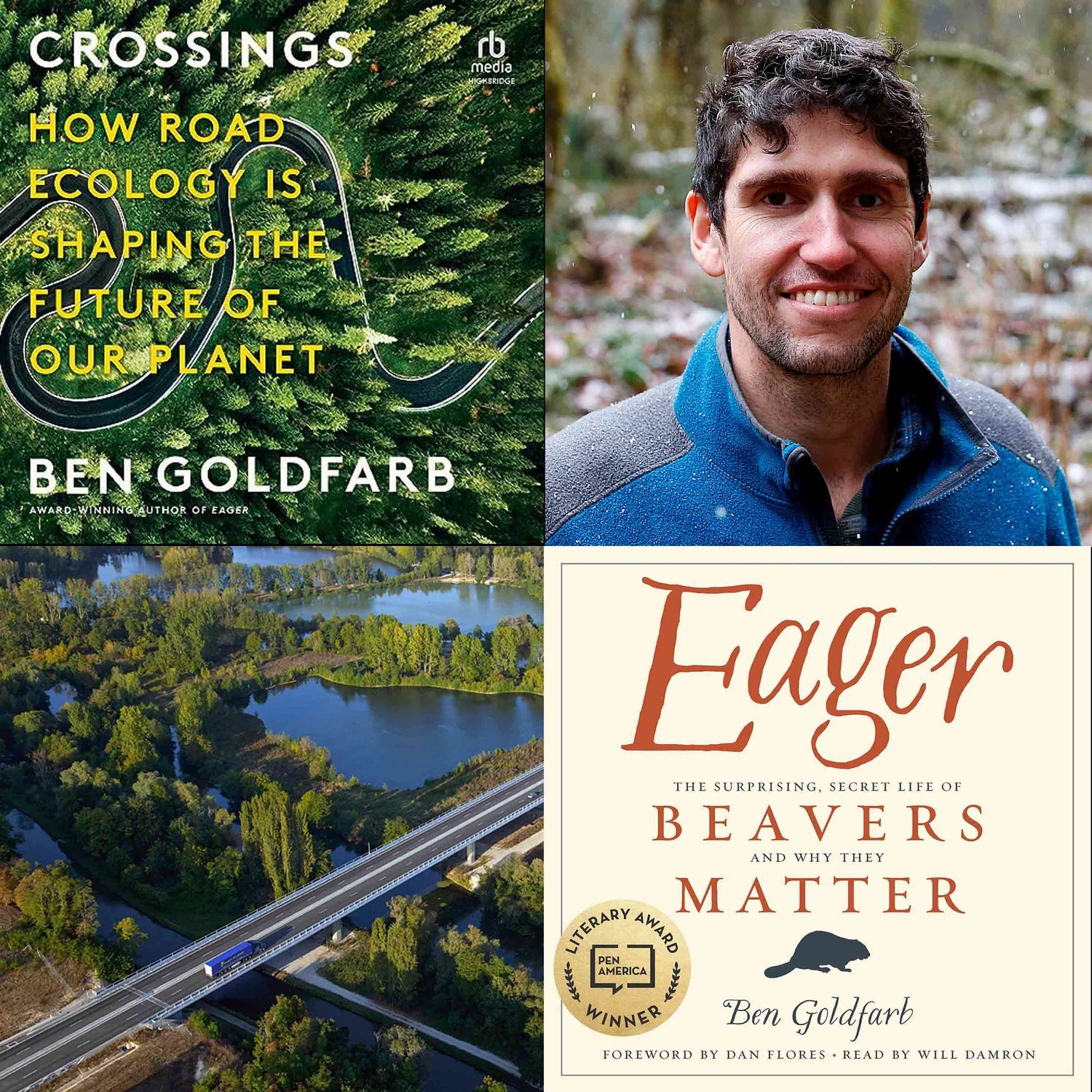
Humanity's Deadly Shadow: The Toll on Birds and Wildlife - BEN GOLDFARB
“The creation of roads is this process that's sort of innate to all beings. You know, we're all sort of inclined to create and follow trails. We just do it at a much vaster and more permanent and destructive scale. I think we need to reconceive how we think about roads in some ways, right? I mean, we think about roads, certainly here in the U. S., as these symbols of movement and mobility and freedom, right? There's so much about the romance of the open road and so much of our popular culture going back to the mid-20th century when the interstate highway systems were built and writers like Jack Kerouac were singing the praises of the open highway. And certainly, roads play that role. I like driving. The iconic Western American road trip is kind of this wonderful experience, but you know, I think the purpose of this book is to say: Yes, roads are a source of human mobility and freedom, but they're doing precisely the opposite for basically all other forms of life, right? They're curtailing animal movement and mobility and freedom, both by killing them directly in the form of roadkill, but also by creating these kinds of impenetrable walls of traffic that prevent animals from moving around the landscape and accessing big swaths of their habitat. Right? So, that's kind of the mental reconfiguration we have to go through, which is to recognize that, hey, roads aren't just forms of mobility and freedom for us. They're also preventing that mobility in basically all other life forms.”Ben Goldfarb is a conservation journalist. He is the author of Crossings: How Road Ecology Is Shaping The Future of Our Planet, named one of the best books of 2023 by the New York Times, and Eager: The Surprising, Secret Life of Beavers and Why They Matter, winner of the 2019 PEN/E.O. Wilson Literary Science Writing Award.www.bengoldfarb.comhttps://wwnorton.com/books/9781324005896www.chelseagreen.com/product/eager-paperbackwww.creativeprocess.infowww.oneplanetpodcast.orgIG www.instagram.com/creativeprocesspodcast
13:0009/05/2024

Environmental Crisis, Philosophy & the Search for Meaning - ROBERT PIPPIN
“Philosophy is both an academic discipline and also something that everybody does. Everybody has to have reflective views about what's significant. They also have to justify to themselves why it's significant or important. The nature of justice itself, and the various opinions that have been written about in philosophy about justice, can get to a very high level. So there's this unusual connection between philosophy and human life. We've inherited from the Middle Ages, this incredible tradition that's now developed into a chance for young people to spend four or five years, in a way, released from the pressures of life. The idea to pursue your ideas a little further in these four years you have, exempt from the pressures of social life, allows philosophy to have a kind of position unique in the academy. In confronting what the best minds in the history of the world have had to say about these issues, the hope is that they provide for the people who are privileged enough to confront philosophy a better and more thoughtful approach to these fundamental questions that everybody has to confront.”What is the importance of philosophy in the 21st century as we enter a post-truth world? How can we reintroduce meaning and uphold moral principles in our world shaken by crises? And what does philosophy teach us about living in harmony with the natural world?Robert Pippin is the Evelyn Stefansson Nef Distinguished Service Professor at the University of Chicago where he teaches in the College, Committee on Social Thought, and Department of Philosophy. Pippin is widely acclaimed for his scholarship in German idealism as well as later German philosophy, including publications such as Modernism as a Philosophical Problem, and Hegel’s Idealism. In keeping with his interdisciplinary interests, Pippin’s book Henry James and Modern Moral Life explores the intersections between philosophy and literature. Pippin’s most recent published book is The Culmination: Heidegger, German Idealism, and the Fate of Philosophy.https://socialsciences.uchicago.edu/directory/Robert-Pippinhttps://press.uchicago.edu/ucp/books/book/chicago/C/bo208042246.htmlwww.creativeprocess.infowww.oneplanetpodcast.orgIG www.instagram.com/creativeprocesspodcast
14:3108/05/2024
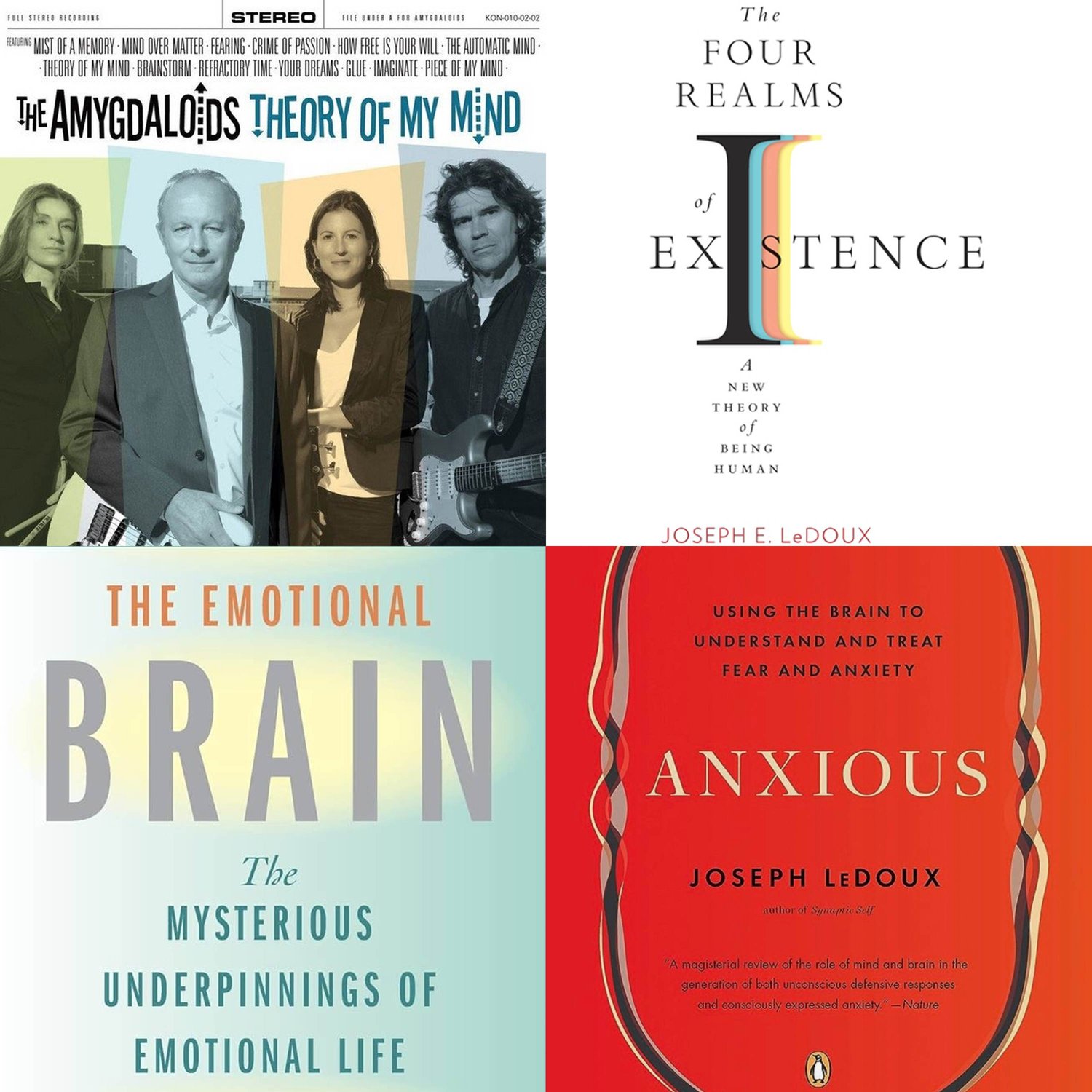
How does the brain process emotions and music? JOSEPH LEDOUX - Neuroscientist, Author, Musician
“We've got four billion years of biological accidents that created all of the intricate aspects of everything about life, including consciousness. And it's about what's going on in each of those cells at the time that allows it to be connected to everything else and for the information to be understood as it's being exchanged between those things with their multifaceted, deep, complex processing.”Joseph LeDoux is a Professor of Neural Science at New York University at NYU and was Director of the Emotional Brain Institute. His research primarily focuses on survival circuits, including their impacts on emotions, such as fear and anxiety. He has written a number of books in this field, including The Four Realms of Existence: A New Theory of Being Human, The Emotional Brain, Synaptic Self, Anxious, and The Deep History of Ourselves. LeDoux is also the lead singer and songwriter of the band The Amygdaloids. www.joseph-ledoux.comwww.cns.nyu.edu/ebihttps://amygdaloids.netwww.hup.harvard.edu/books/9780674261259www.creativeprocess.infowww.oneplanetpodcast.orgIG www.instagram.com/creativeprocesspodcast
14:2503/05/2024
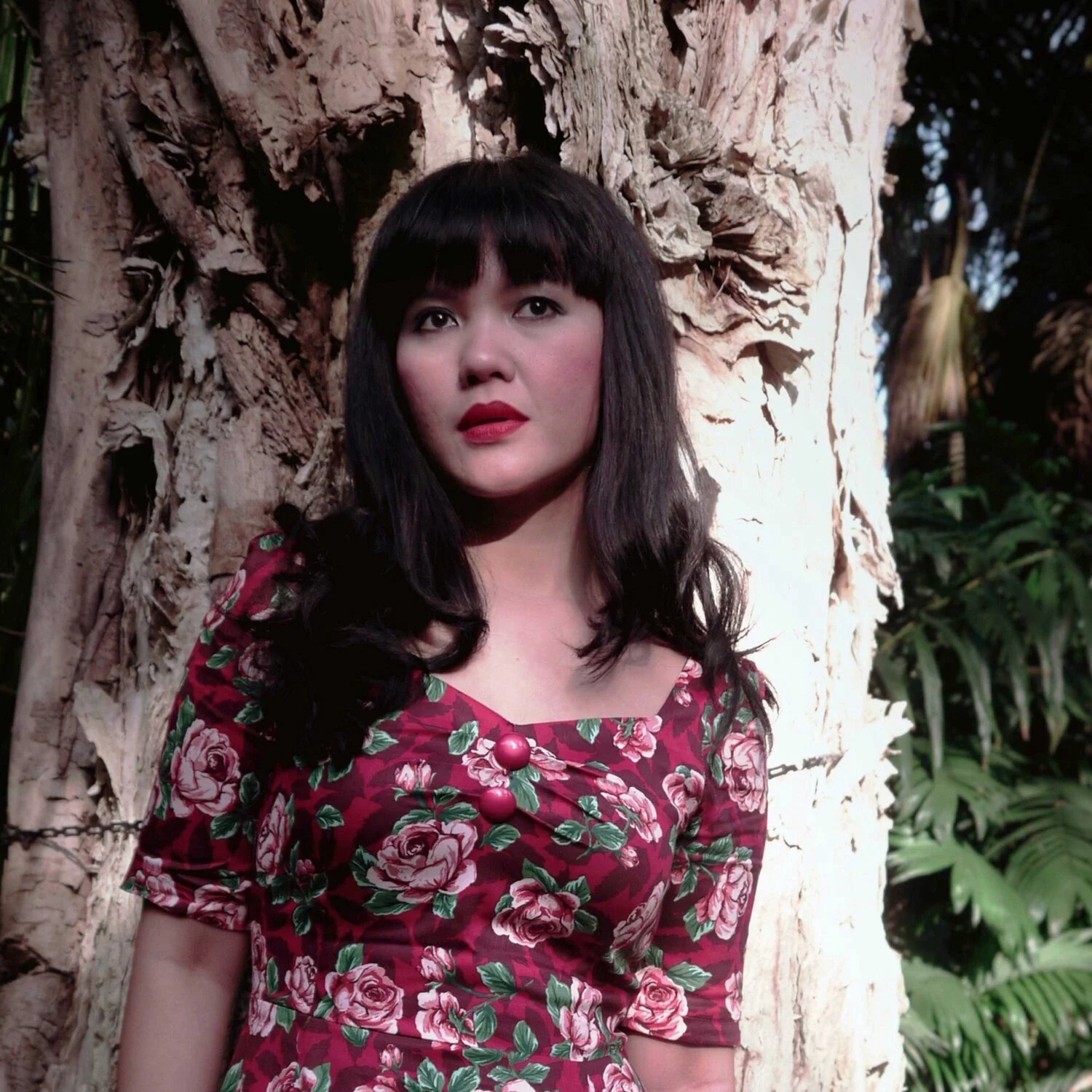
Travel, Literature & Identity with INTAN PARAMADITHA - Author of The Wandering
“The Wandering is a choose your own adventure novel, and the reader is situated in the shoes of this brown woman from the Global South. She's 27 and in a way, she is stuck with her life. She aspires to be middle class, but her job doesn't allow her to achieve this social mobility. In her condition, she makes a deal with a devil, a reference to the story of Faust and Mephistopheles, finally getting a pair of red shoes that will take her anywhere. But that means she will never be able to find home—that's the curse of the shoes. The title in Indonesian is Gentayanga, which is a word used to describe ghosts who exist in a liminal state. This is a metaphor for people who travel. I came up with the idea for this novel in 2009 when I was an Indonesian international student studying for my PHD in New York. When I went back to Jakarta, I felt like I was not at home, but New York wasn't my home either, so there's a feeling of being neither here nor there. I wanted to capture the sense of being everywhere, which is liberating, but also the sense of displacement.”Intan Paramaditha is a writer and an academic. Her novel The Wandering (Harvill Secker/ Penguin Random House UK), translated from the Indonesian language by Stephen J. Epstein, was nominated for the Stella Prize in Australia and awarded the Tempo Best Literary Fiction in Indonesia, English PEN Translates Award, and PEN/ Heim Translation Fund Grant from PEN America. She is the author of the short story collection Apple and Knife, the editor of Deviant Disciples: Indonesian Women Poets, part of the Translating Feminisms series of Tilted Axis Press and the co-editor of The Routledge Companion to Asian Cinemas (forthcoming 2024). Her essay, “On the Complicated Questions Around Writing About Travel,” was selected for The Best American Travel Writing 2021. She holds a Ph.D. from New York University and teaches media and film studies at Macquarie University, Sydney.https://intanparamaditha.com www.penguinrandomhouse.ca/books/626055/the-wandering-by-intan-paramaditha/9781787301184www.creativeprocess.info www.oneplanetpodcast.orgIG www.instagram.com/creativeprocesspodcast
11:5025/04/2024
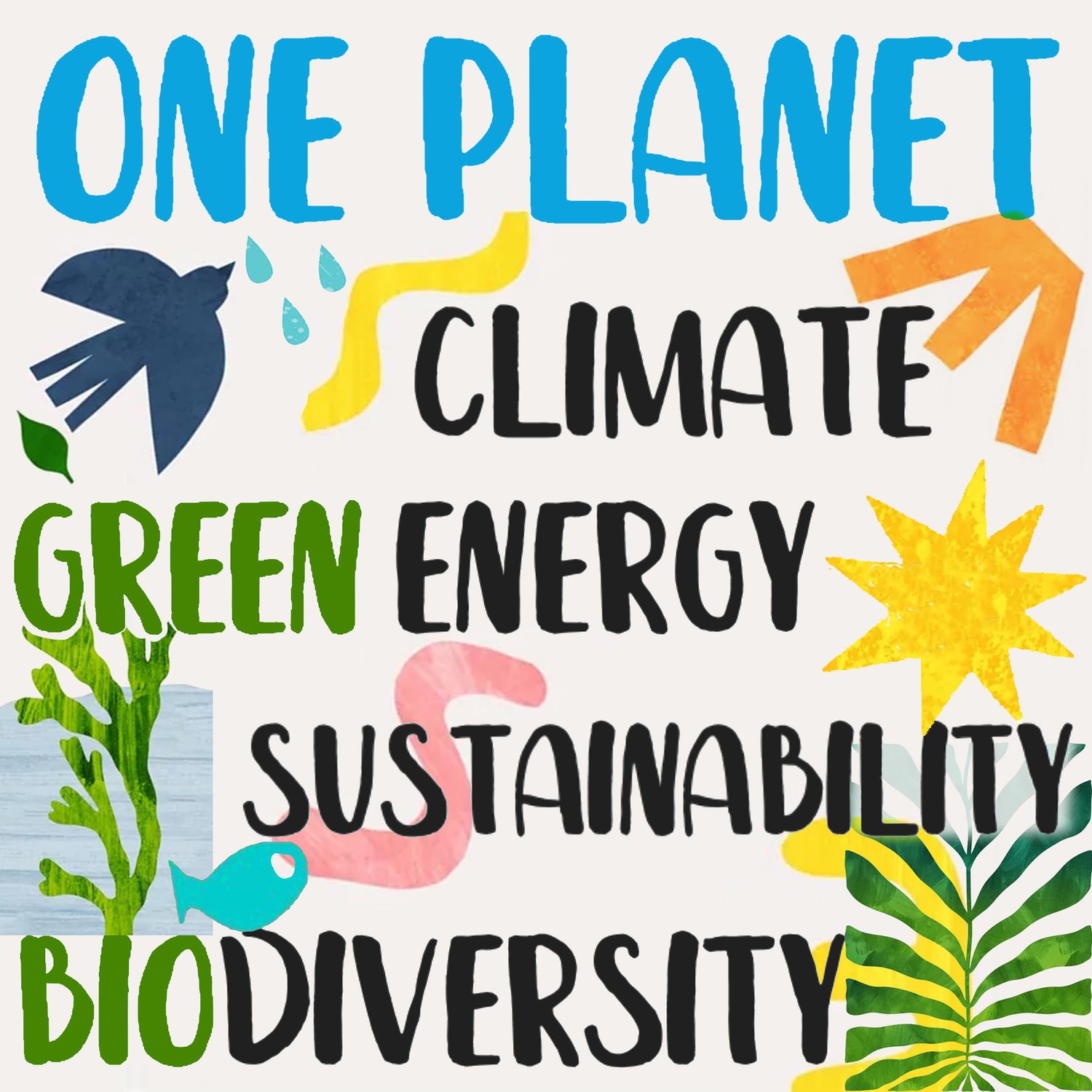
Voices of the Earth: Reflections on Nature, Humanity & Climate Change
Environmentalists, writers, artists, activists, and public policy makers explore the interconnectedness of living beings and ecosystems. They highlight the importance of conservation, promote climate education, advocate for sustainable development, and underscore the vital role of creative and educational communities in driving positive change.00:00 "The Conditional" by U.S. Poet Laureate Ada Limón01:27 The Secret Language of Animals: Ingrid Newkirk, President of PETA03:03 A Love Letter to the Living World: Carl Safina, Ecologist & Author04:11 Exploring the Mysteries of Soil and Coral Reefs: Merlin Sheldrake, Biologist, Author of Entangled Life04:47 Exploring Coral Reefs: Richard Vevers, Founder of The Ocean Agency05:56 The Importance of Climate Education: Kathleen Rogers, President of EarthDay.org07:02 The Timeless Wisdom of Turtles: Sy Montomery, Naturalist & Author07:38 Optimism in the Face of Environmental Challenges: Richard Vevers08:32 Urban Solutions for a Sustainable Future: Paula Pinho, Director, Just Transition, Consumers, Energy Efficiency & Innovation, European Commission08:57 The Circular Economy: Walter Stahel, Founder & Director of the Product-Life Institute09:39 The Power of Speaking Out for Sustainability: Paula Pinho10:16 Empowering the Next Generation Through Education: Jeffrey Sachs, President of the UN Sustainable Development Solutions Networkwww.creativeprocess.info www.oneplanetpodcast.orgIG www.instagram.com/creativeprocesspodcastwww.maxrichtermusic.comhttps://studiorichtermahr.comMax Richter’s music featured in this episode are “On the Nature of Daylight” from The Blue Notebooks, “Path 19: Yet Frailest” from Sleep.Music is courtesy of Max Richter, Universal Music Enterprises, and Mute Song.
11:4324/04/2024
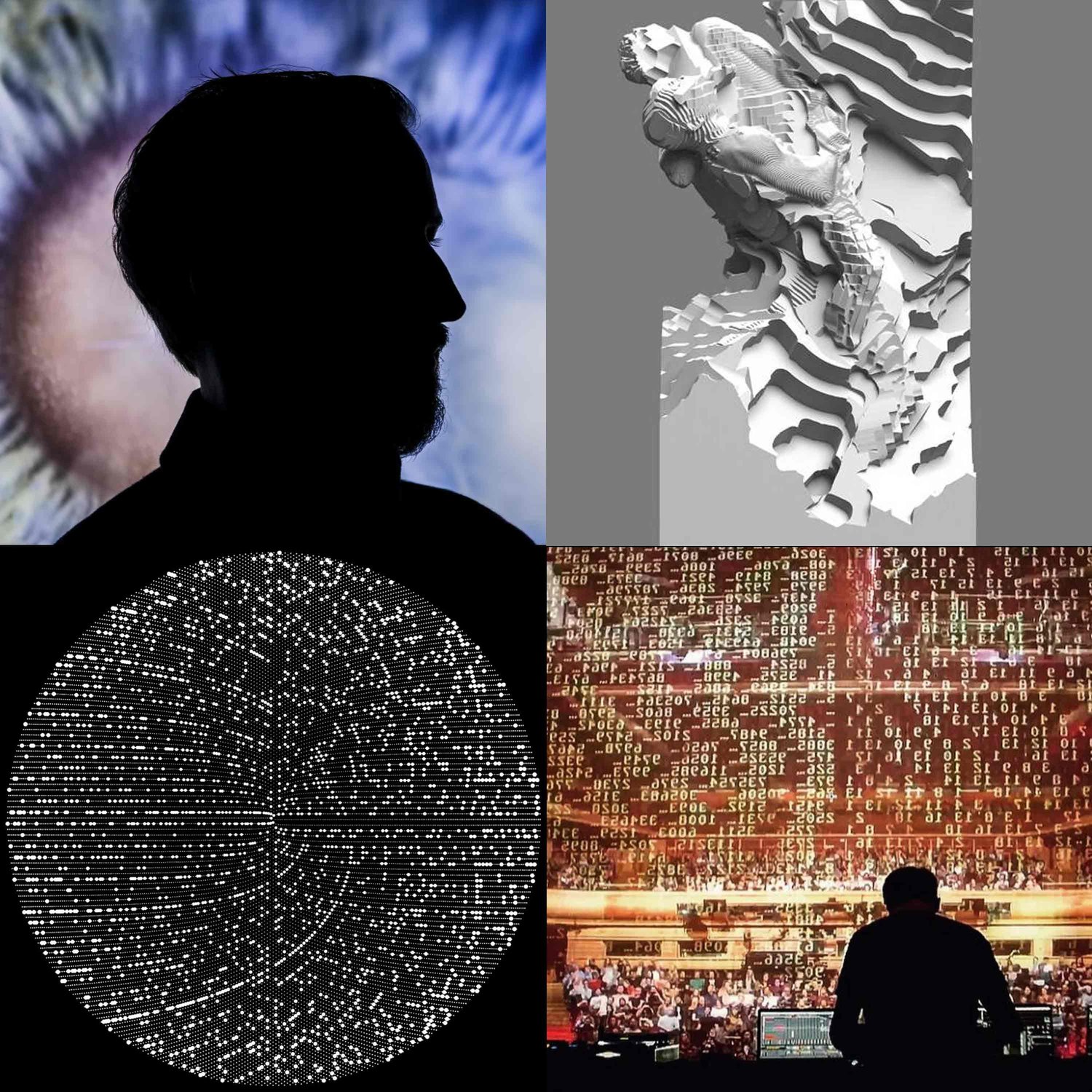
Exploring Science, Music, AI & Consciousness with MAX COOPER
“As technology becomes more dominant, the arts become ever more important for us to stay in touch the things that the sciences can't tackle. What it's actually like to be a person? What's actually important? We can have this endless progress inside this capitalist machine for greater wealth and longer life and more happiness, according to some metric. Or we can try and quantify society and push it forward. Ultimately, we all have to decide what's important to us as humans, and we need the arts to help with that. So, I think what's important really is just exposing ourselves to as many different ideas as we can, being open-minded, and trying to learn about all facets of life so that we can understand each other as well. And the arts is an essential part of that.”How is being an artist different than a machine that is programmed to perform a set of actions? How can we stop thinking about artworks as objects, and start thinking about them as triggers for experiences? In this conversation with Max Cooper, we discuss the beauty and chaos of nature and the exploration of technology music and consciousness.Max Cooper is a musician with a PhD in computational biology. He integrates electronic music with immersive video projections inspired by scientific exploration. His latest project, Seme, commissioned by the Salzburg Easter Festival, merges Italian musical heritage with contemporary techniques, was also performed at the Barbican in London. He supplied music for a video narrated by Greta Thunberg and Pope Francis for COP26.In 2016, Cooper founded Mesh, a platform to explore the intersection of music, science and art. His Observatory art-house installation is on display at Kings Cross until May 1st.https://maxcooper.nethttps://osterfestspiele.at/en/programme/2024/electro-2024https://meshmeshmesh.netwww.kingscross.co.uk/event/the-observatoryThe music featured on this episode was Palestrina Sicut, Cardano Circles, Fibonacci Sequence, Scarlatti K141. Music is from Seme and is courtesy of Max Cooper.www.creativeprocess.infowww.oneplanetpodcast.orgIG www.instagram.com/creativeprocesspodcast
13:0918/04/2024
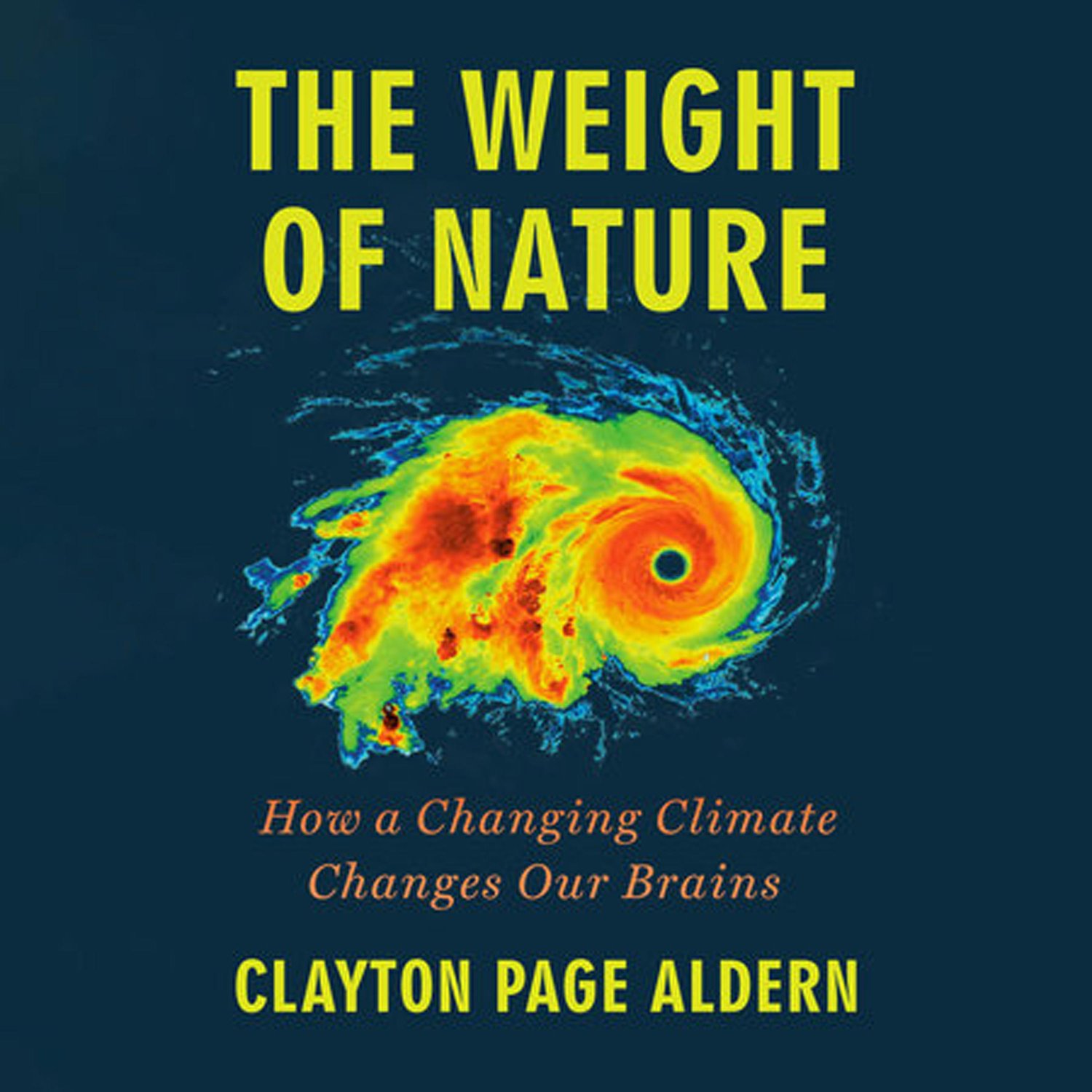
How climate change is making us sick, angry & anxious - CLAYTON ALDERN - Neuroscientist turned Eco-Journalist
"I want to be wowed by the world. I want to gaze at it in awe and wonder. And I think when we take a step back and begin to appreciate the complexity of the interactions around us. We're taking note of a very porous between the self and the rest of the world. We are literally observing our enmeshment in our environment. And it's that kind of a reference frameshift that I think is going to help us move out of some of the darkness. My mother is an artist, and I think growing up surrounded by her practice exposed me to the creative process and is probably that which afforded me a certain sympathy for those tools and those modes of exploring the world later in life."Clayton Page Aldern is an award winning neuroscientist turned environmental journalist whose work has appeared in The Atlantic, The Guardian, The Economist, and Grist, where he is a senior data reporter. A Rhodes Scholar, he holds a Master's in Neuroscience and a Master's in Public Policy from the University of Oxford. He is also a research affiliate at the Center for Studies in Demography and Ecology at the University of Washington. He is the author of The Weight of Nature: How a Changing Climate Changes Our Minds, Brains, and Bodies, which explores the neurobiological impacts of rapid environmental change.https://claytonaldern.comwww.penguinrandomhouse.com/books/717097/the-weight-of-nature-by-clayton-page-aldern https://csde.washington.edu www.creativeprocess.infowww.oneplanetpodcast.orgIG www.instagram.com/creativeprocesspodcast
13:2816/04/2024

There’s another side to every war. Satire, War & Hollywood - Co-creator DON McKELLAR on The Sympathizer
"Right from the beginning, in talking with Park Chan-wook, we wanted this sort of multiplicity of narrative voices and devices. In a way, it's about how the story, in this case of the Vietnam War, has been told, what the expected story is, at least, for American viewers, which they may mainly know through the movies and through visual representations. And it's how our lead character, The Captain, who is writing the story, who has divided loyalties. How can we capture the contradictions within that story? And we tried to make that complexity part of the actual fabric of the show."Don McKellar is a highly accomplished writer, director, and actor. He has written films including Roadkill, Highway 61, Dance Me Outside, The Red Violin, and Blindness. He won the Prix de la Jeunesse at the 1988 Cannes Film Festival for his directorial debut, Last Night, which he also wrote and starred in. He is an eight-time Genie Award nominee and a two-time winner.He wrote the book for the acclaimed musical The Drowsy Chaperone, for which he received a Tony Award. Most recently, Don served as writer, executive producer, and co-showrunner on The Sympathizer, a television adaptation of Viet Thanh Nguyen's Pulitzer Prize-winning novel of the same name. The series was co-created with Park Chan-wook.www.imdb.com/name/nm0001528/mediaviewer/rm2411273728/?ref_=nm_ov_phwww.imdb.com/title/tt14404618/?ref_=nv_sr_srsg_0_tt_8_nm_0_q_the%20sympawww.creativeprocess.infowww.oneplanetpodcast.orgIG www.instagram.com/creativeprocesspodcastPhoto courtesy of HBO
09:4416/04/2024
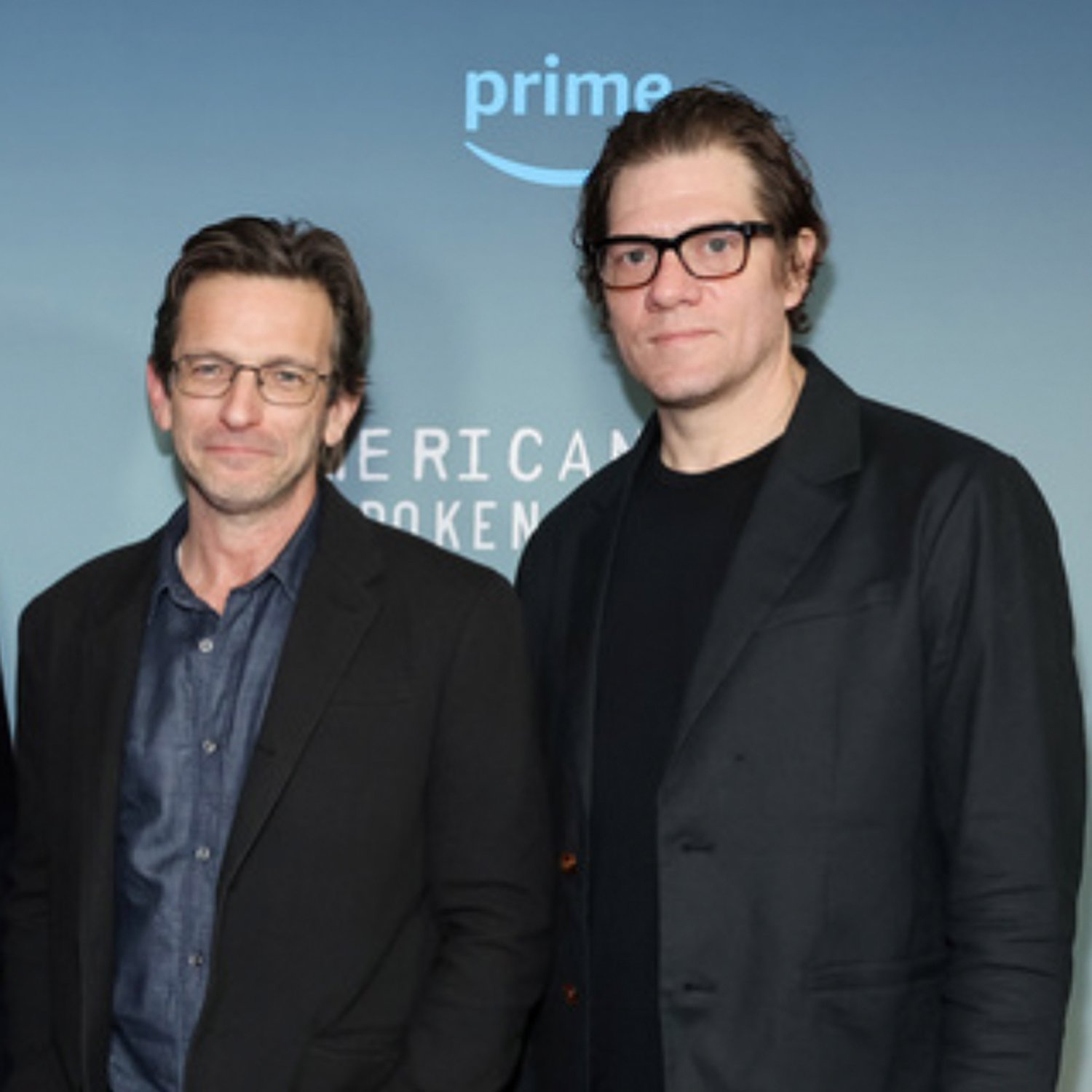
Do good deeds offset bad deeds? How do our families shape who we become? - DAN FUTTERMAN & ADAM RAPP
"We ended on such a cliffhanger with Isaac presenting the wrench at the police station to Jeff Daniels' character. It allowed us to sort of start from a place of what's going to happen next? And I think because what is drawn in the novel and because of what Danny brought into the original script of the first season and all the ideas he brought in. The biggest thing we talked about was the relationship between Del Harris and Grace Poe and what is the ambiguity there? And I think when, when you start answering questions on either side of that too firmly, I think it allows the audience to disconnect from it and then they go, Oh, he's a monster, or she's a monster. And then you just have this sort of a good and bad guy, good and bad woman narrative that is oversimplified all too often in our culture.""It felt to me like a lot of the drive of season two is about payback. There are people who feel they're owed things. They want payback. There are people who feel like they have to get back at people because they've been wronged in some way. In a way, every character has something, some way that they're trying to right the wrong that was done to them or that they did in the first season. Jeff Daniel's character, Del Harris, is really driven by trying to right what he sees as wrongs that he did in the first season. And he's staying a little bit away from Grace because he doesn't know how much to blame her or how much were his own decisions or how much she kind of drove him to do things. So that was fun to explore."Dan Futterman is creator, executive producer, and writer of Amazon Prime's American Rust, the acclaimed crime drama starring Jeff Daniels, Maura Tierney, and David Alvarez. Previously, Dan has written screenplays for Capote, Foxcatcher, In Treatment, and Gracepoint. He served as executive producer on The Looming Tower. Dan is also an actor, director, and two-time Oscar nominee.Adam Rapp is the executive producer and writer of American Rust. He has written plays, films, and series, including Red Light Winter, The Sound Inside, In Treatment, Blackbird, The Looming Tower, and Dexter: New Blood. His latest novel is Wolf at the Table. He recently wrote the book for the new Broadway musical, The Outsiders. www.imdb.com/name/nm0001246www.imdb.com/name/nm1452688/?ref_=fn_al_nm_1www.imdb.com/title/tt1532495/ https://outsidersmusical.com/ www.hachettebookgroup.com/titles/adam-rapp/wolf-at-the-table/9780316434164/?lens=little-brownwww.creativeprocess.infowww.oneplanetpodcast.orgIG www.instagram.com/creativeprocesspodcast
11:0712/04/2024
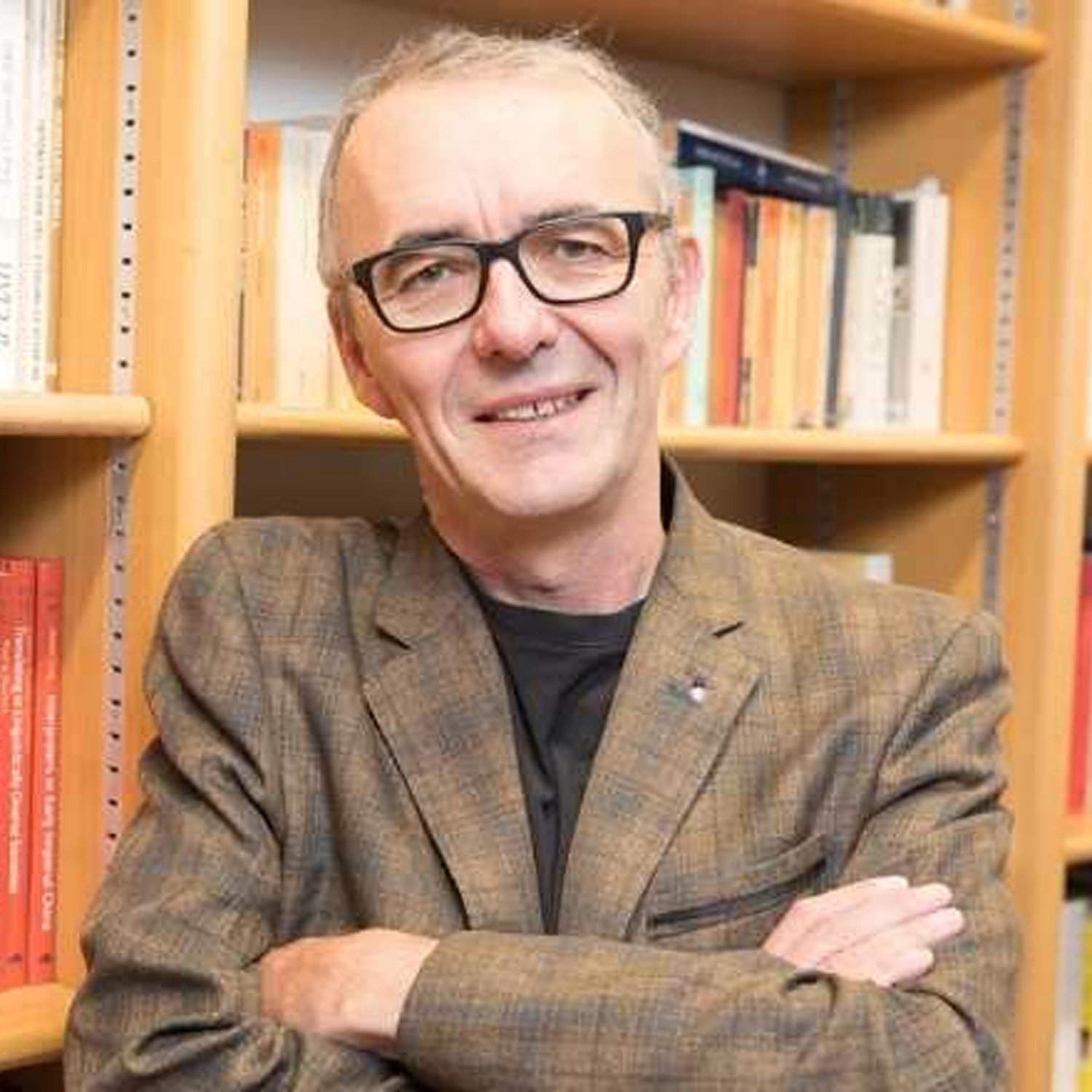
How has travel contributed to the ecological degradation of the planet? - Highlights - MICHAEL CRONIN
“What I think will stay with you for an entire lifetime is to be equipped with the capacity and the tools to find wonder in the world. And that is to find a language for that world, which is supplied through a folk tale, mythology, literature, poetry, and song. And then to also to have the kind of knowledge basis. I still think we suffer from this terrible division between the humanities and the sciences. These two worlds are sundered. I think we need to bring them together. Anybody who has for a moment studied the operations of photosynthesis in a plan or capillary action in trees is just astonished by the miracle of these operations. So I think we need to infuse a kind of a syncretic knowledge, but that would have as its central or its core point of value a rediscovery of wonder in the world. And of course, a world that you wonder at is a world that you cherish and a world that you cherish is a world that you want to preserve. And that, I think, is our only hope.”Michael Cronin is an Irish academic specialist in culture, travel literature, translation studies, and the Irish language. He has taught in universities in France and Ireland and has held visiting research fellowships to universities in Canada, Belgium, Peru, France, and Egypt. He's a fellow of Trinity College Dublin, an elected member of the Royal Irish Academy, and a senior researcher in the Trinity Centre for Literary and Cultural Translation. He is the current holder of the Chair of French (est. 1776) at TCD. He is the author of Eco-Travel: Journeying in the Age of the Anthropocene, Eco-Translation: Translation and Ecology in the Age of the Anthropocene, and other books.www.tcd.ie/French/people/michaelcronin.phpwww.cambridge.org/core/books/ecotravel/24263DF8E2E021915FEF4F937F146D25www.routledge.com/Eco-Translation-Translation-and-Ecology-in-the-Age-of-the-Anthropocene/Cronin/p/book/9781138916845www.creativeprocess.infowww.oneplanetpodcast.orgIG www.instagram.com/creativeprocesspodcast
12:2903/04/2024
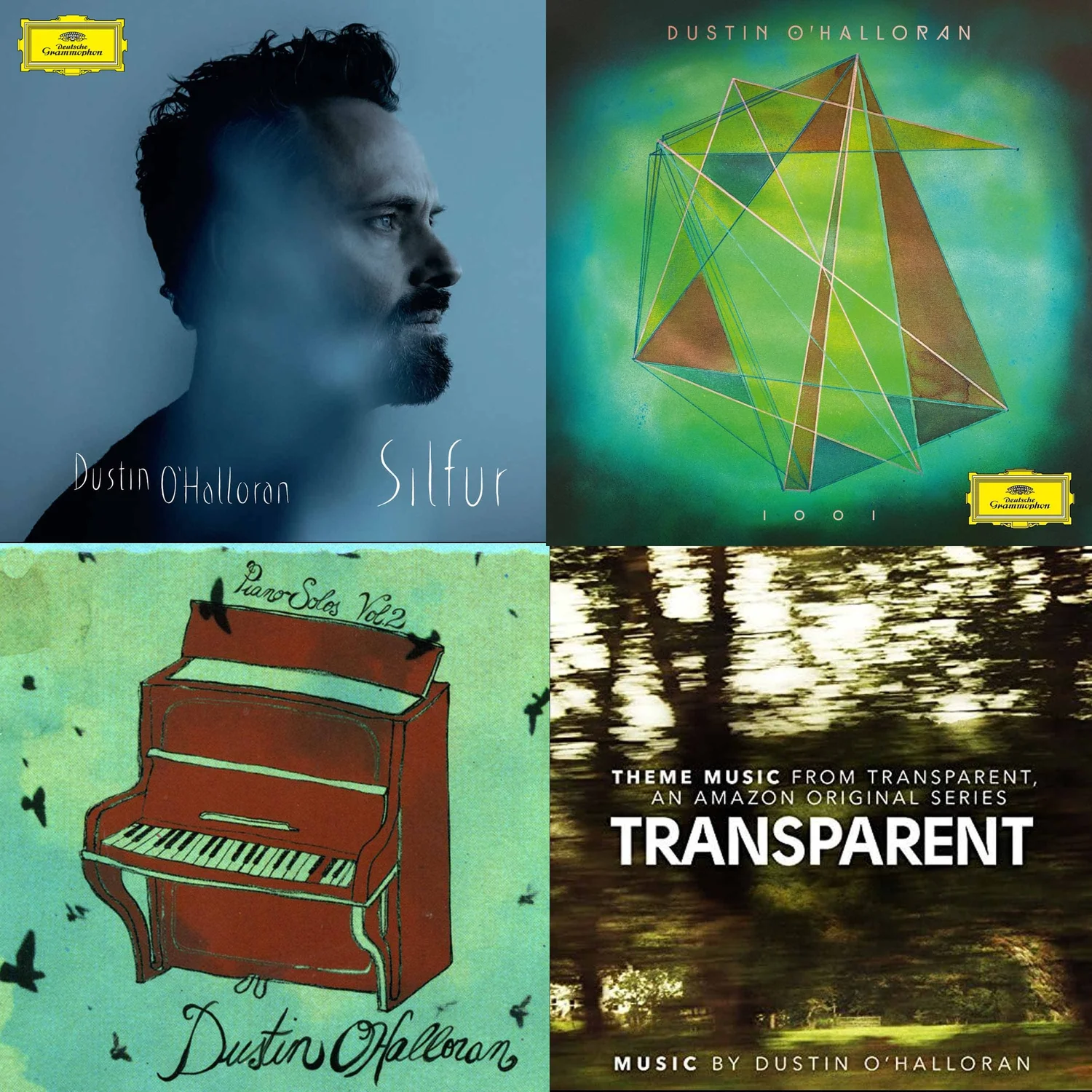
Consciousness, AI & Creativity with DUSTIN O’HALLORAN - Emmy Award-winning Composer
Dustin O’Halloran is a pianist and composer and member of the band A Winged Victory for the Sullen. Winner of a 2015 Emmy Award for his main title theme to Amazon's comedy drama Transparent, he was also nominated for an Oscar, a Golden Globe, and a BAFTA for his score for Lion, written in collaboration with Volker Bertelmann (aka Hauschka). He has composed for Wayne McGregor (The Royal Ballet, London), Sofia Coppola’s Marie Antoinette, Ammonite starring Kate Winslet, and The Essex Serpent starring Claire Danes. He produced Katy Perry’s “Into Me You See” from her album Witness and appears on Leonard Cohen’s 2019 posthumous album Thanks For The Dance. With six solo albums under his name, his latest album 1 0 0 1, which explores ideas of technology, humanity and mind-body dualism, is available on Deutsche Grammophon."The album 1 0 0 1 is really like a journey from our connection with nature to where we are now, in this moment where we're playing with technology. We're almost in this hybrid space, not fully understanding where it's going. And it's very deep in our subconscious and probably much greater than we realize. And it sort of ends in this space where the consciousness of what we're creating, it's going to be very separate from us. And I believe that's kind of where it's heading – the idea of losing humanity, losing touch with nature and becoming outside of something that we have created."https://dustinohalloran.com/www.deutschegrammophon.com/en/artists/dustin-o-halloranwww.imdb.com/name/nm0641169/bio/?ref_=nm_ov_bio_smMusic courtesy of Dustin O’Halloran and Deutsche Grammophonwww.creativeprocess.infowww.oneplanetpodcast.orgIG www.instagram.com/creativeprocesspodcast
00:0029/03/2024
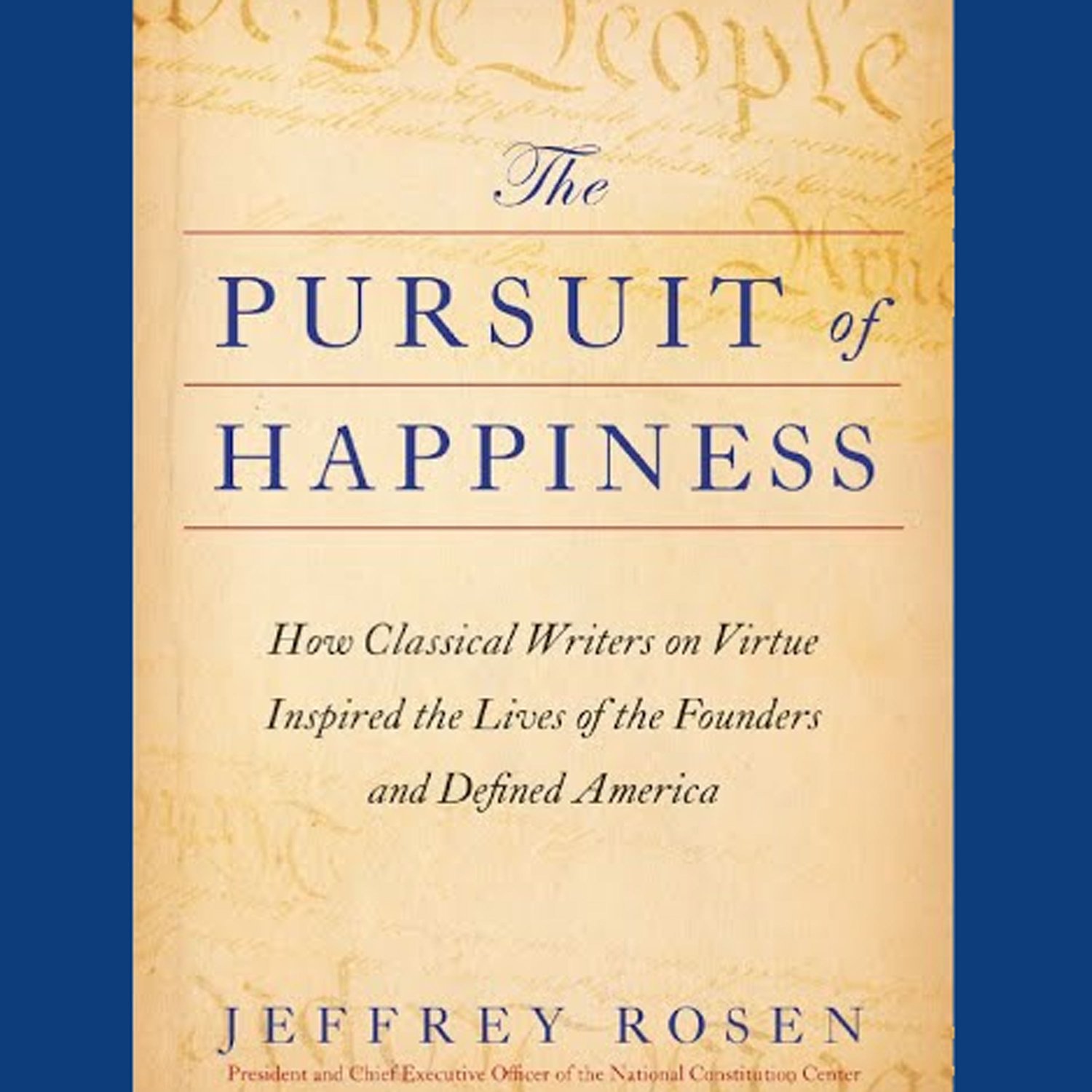
The Pursuit of Happiness - JEFFREY ROSEN - President & CEO of the National Constitution Center
Jeffrey Rosen is President and CEO of the National Constitution Center, where he hosts We the People, a weekly podcast of constitutional debate. He is also a professor of law at the George Washington University Law School and a contributing editor at The Atlantic. Rosen is a graduate of Harvard College, Oxford University, and Yale Law School. He is the author of seven previous books, including the New York Times bestseller Conversations with RBG: Justice Ruth Bader Ginsburg on Life, Love, Liberty, and Law. His essays and commentaries have appeared in The New York Times Magazine; on NPR; in The New Republic, where he was the legal affairs editor; and in The New Yorker, where he has been a staff writer. His latest book is The Pursuit of Happiness: How Classical Writers on Virtue Inspired the Lives of the Founders and Defined America.https://constitutioncenter.org/about/board-of-trustees/jeffrey-rosenwww.simonandschuster.com/books/The-Pursuit-of-Happiness/Jeffrey-Rosen/9781668002476https://constitutioncenter.org/news-debate/podcastswww.creativeprocess.infowww.oneplanetpodcast.orgIG www.instagram.com/creativeprocesspodcast
12:2726/03/2024

Intimacy Coordinator ITA O’BRIEN on Normal People, Sex Education & Creating Safe Spaces
"For years, people spoke about how awkward or embarrassing it was to perform the intimate content. And what they're speaking about is feeling horrible. If something's awkward, that squirm, that ring in the body, it feels embarrassing. That's actually an emotion that is not professional. That is not allowing the actor to stay feeling listened to, heard, empowered, autonomous. And so that they can just get on without any of those concerns and do their job to their best ability. And that's the awareness that we brought. So, we're saying, it is not suitable in our workplace for anybody to feel harassed or abused. The awareness in the industry, with acknowledging the injury from all those who came forward around the Weinstein allegations is the injury of when someone's coerced into doing something or that their career being threatened is emotional, psychological injury. It's really clear if you've got a stunt and someone's going to be jumping from roof to roof, they might fall down the cracks and break an ankle. Of course, the producers need to mitigate that risk and put in place everything so that the risk that you can perceive might happen is mitigated."Ita O’Brien is the UK’s leading Intimacy Coordinator, founder of Intimacy on Set (and author of the Intimacy On Set Guidelines). Her company, set up in 2018 provides services to TV, film, and theatre when dealing with intimacy, and is a SAG-Aftra accredited training provider of Intimacy Practitioners. Intimacy on Set has supported numerous high-profile film and TV productions including Normal People & Conversations With Friends (BBC3/Hulu), Sex Education 1&2 (Netflix), I May Destroy You (BBC/HBO), It’s A Sin (Channel 4), (Neal Street Prods / Searchlight Pictures).https://www.itaobrien.com/https://www.itaobrien.com/intimacy-on-set-guidelines.htmlhttps://www.imdb.com/name/nm1357677/www.creativeprocess.infowww.oneplanetpodcast.orgIG www.instagram.com/creativeprocesspodcast
12:5222/03/2024

What can turtles teach us about time, patience & wisdom? - Author SY MONTGOMERY & Illustrator MATT PATTERSON
"A friend had asthma as a child, and she couldn't have a pet, but she loved animals. So she watched the ants crawl on the asphalt roof of her apartment when she was a kid. And she is a biologist now who studies tree kangaroos in Papua New Guinea, but it all started with watching ants. So there is wildness and wonder all around us and we can all help preserve that wildness and wonder. It makes a human feel less lonely. So many humans I know, they're just suffering terribly from loneliness even though they're in a sea of other humans. Well, I never feel lonely. And I can be alone, so-called, in a landscape with no other human anywhere, and I feel nested and safe and at home. And I know you do, too, because there are all these other lives around us. And when you think of, as Mary Oliver said, 'our wild and precious life,' I mean, I certainly cherish my one precious single life. But the life with a capital L all around me is so much more precious and so much more glorious, and being part of that just opens up my soul and frees me from everything."Author Sy Montgomery and illustrator Matt Patterson are naturalists, adventurers, and creative collaborators. Montgomery has published over thirty acclaimed nonfiction books for adults and children and received numerous honors, including lifetime achievement awards from the Humane Society and the New England Booksellers Association.Patterson’s illustrations have been featured in several books and magazines, such as Yankee Magazine and Fine Art Connoisseur. He is the recipient of Roger Tory Peterson Wild American Art Award, National Outdoor Book Award for Nature and the Environment, and other honors. Most recently, Patterson provided illustrations for Freshwater Fish of the Northeast.Their joint books are Of Time and Turtles: Mending the World, Shell by Shattered Shell and The Book of the Turtle. Montgomery’s other books include The Soul of an Octopus, The Hawk’s Way and The Secrets of the Octopus (published in conjunction with a National Geographic TV series).www.mpattersonart.comhttps://symontgomery.comwww.harpercollins.com/products/of-time-and-turtles-sy-montgomery?variant=41003864817698www.harpercollins.com/products/the-book-of-turtles-sy-montgomery?variant=40695888609314https://press.uchicago.edu/ucp/books/book/distributed/F/bo215806915.htmlwww.creativeprocess.infowww.oneplanetpodcast.orgIG www.instagram.com/creativeprocesspodcast
14:5121/03/2024

The Transformative Power of Writing with ANDRE DUBUS III
"If you want to check in and get some clarity on what you believe, I tell people, well, just write something really honest and emotionally naked and read it back to yourself, and you'll see a lot of what you believe, think, fear, regret, desire, etc.We always reveal ourselves in our work. The truth is, I identify far more with those on the outside than on the inside. And even though from the outside it looks like I'm on the inside – you know, I'm a successful author, professor, white, privileged, educated, straight male from the United States – you can't get more privileged than that in a patriarchal, misogynistic, racist society. But I don't identify with those people. And I don't know if it's because of my youth or just how I am in the world. When you read that passage from Ghost Dogs back to me about my hatred of all those things. That hatred for those kinds of injustices has never left me. In fact, they've just grown sharper."Andre Dubus III’s nine books include the New York Times’ bestsellers House of Sand and Fog, The Garden of Last Days, and his memoir, Townie. His work has been included in The Best American Essays and The Best Spiritual Writing anthologies. His novel, House of Sand and Fog was a finalist for the National Book Award and was made into an Academy Award-nominated film starring Ben Kingsley and Jennifer Connelly. His most recent books are the novel, Such Kindness and a collection of personal essays, Ghost Dogs: On Killers and Kin. Dubus has been a finalist for the National Book Award, and has been awarded a Guggenheim Fellowship, The National Magazine Award for Fiction, two Pushcart Prizes, and is a recipient of an American Academy of Arts and Letters Award in Literature. His books are published in over twenty-five languages, and he teaches at the University of Massachusetts Lowell. www.andredubus.comwww.andredubus.com/ghost-dogswww.andredubus.com/house-of-sand-and-fogwww.andredubus.com/such-kindnesswww.creativeprocess.infowww.oneplanetpodcast.orgIG www.instagram.com/creativeprocesspodcast
13:0319/03/2024

Revolutionizing Sustainability: BERTRAND PICCARD's Path to a Cleaner Planet
"In a lot of regions of the world, ecology has started to be a hostage of political parties. You have the left wing, which takes ecology as its flagship. You have the right wing, which is fighting against ecology because they want to fight against the left wing, and they use all the arguments of ecology to destroy ecology. It's very strange that the people who want to protect the environment are not able to make their cause much more appealing. This is what I try to do with the new narrative of the Solar Impulse Foundation: to show the opportunities more than the risks. To show the solutions more than the problems."Bertrand Piccard is a notable Swiss environmentalist, explorer, author, and psychiatrist. His ventures include being the first to travel around the world in a non-stop balloon flight and years later in a solar-powered airplane. He is regarded as a pioneer in clean technology. Piccard is also the founder of the Solar Impulse Foundation, which has identified over 1500 actionable and profitable climate solutions and connects them with investors. As a UN Ambassador for the Environment, his goal is to convince leaders of the viability of a zero-carbon economy, which he will demonstrate via his next emission-free project Climate Impulse, a green hydrogen-powered airplane that can fly nonstop around the earth."In a lot of regions of the world, ecology has started to be a hostage of political parties. You have the left wing, which takes ecology as its flagship. You have the right wing, which is fighting against ecology because they want to fight against the left wing, and they use all the arguments of ecology to destroy ecology. It's very strange that the people who want to protect the environment are not able to make their cause much more appealing. This is what I try to do with the new narrative of the Solar Impulse Foundation: to show the opportunities more than the risks. To show the solutions more than the problems."http://www.solarimpulse.comhttps://climateimpulse.org/https://bertrandpiccard.com/Photos:Bertrand Piccard with Ilham Kadri, CEO Syensqo (main technological partner of Climate Impulse)Bertrand Piccard @ Solar Impulse, Jean Revillard
11:2614/03/2024

Will human efficiency destroy the planet and us? - DR. LUDOVIC SLIMAK - Author of The Naked Neanderthal
“This book is not just about Neanderthals. It's a book about us. I wanted to warn humans, to say there is something in us that is so efficient and dangerous. We've effectively collapsed many things and are now inducing the collapse of natural environments on the planet. And after that, we might even cause the collapse of ourselves as Homo sapiens.”Ludovic Slimak is a paleoanthropologist at the University of Toulouse in France and Director of the Grotte Mandrin research project. His work focuses on the last Neanderthal societies, and he is the author of several hundred scientific studies on these populations. His research has been featured in Nature, Science, the New York Times, and other publications. He is the author of The Naked Neanderthal: A New Understanding of the Human Creature.http://ww5.pegasusbooks.com/books/the-naked-neanderthal-9781639366163-hardcoverhttps://lampea.cnrs.fr/spip.php?article3767www.odilejacob.fr/catalogue/sciences-humaines/archeologie-paleontologie-prehistoire/dernier-neandertalien_9782415004927.phpwww.creativeprocess.infowww.oneplanetpodcast.orgIG www.instagram.com/creativeprocesspodcast
14:0712/03/2024
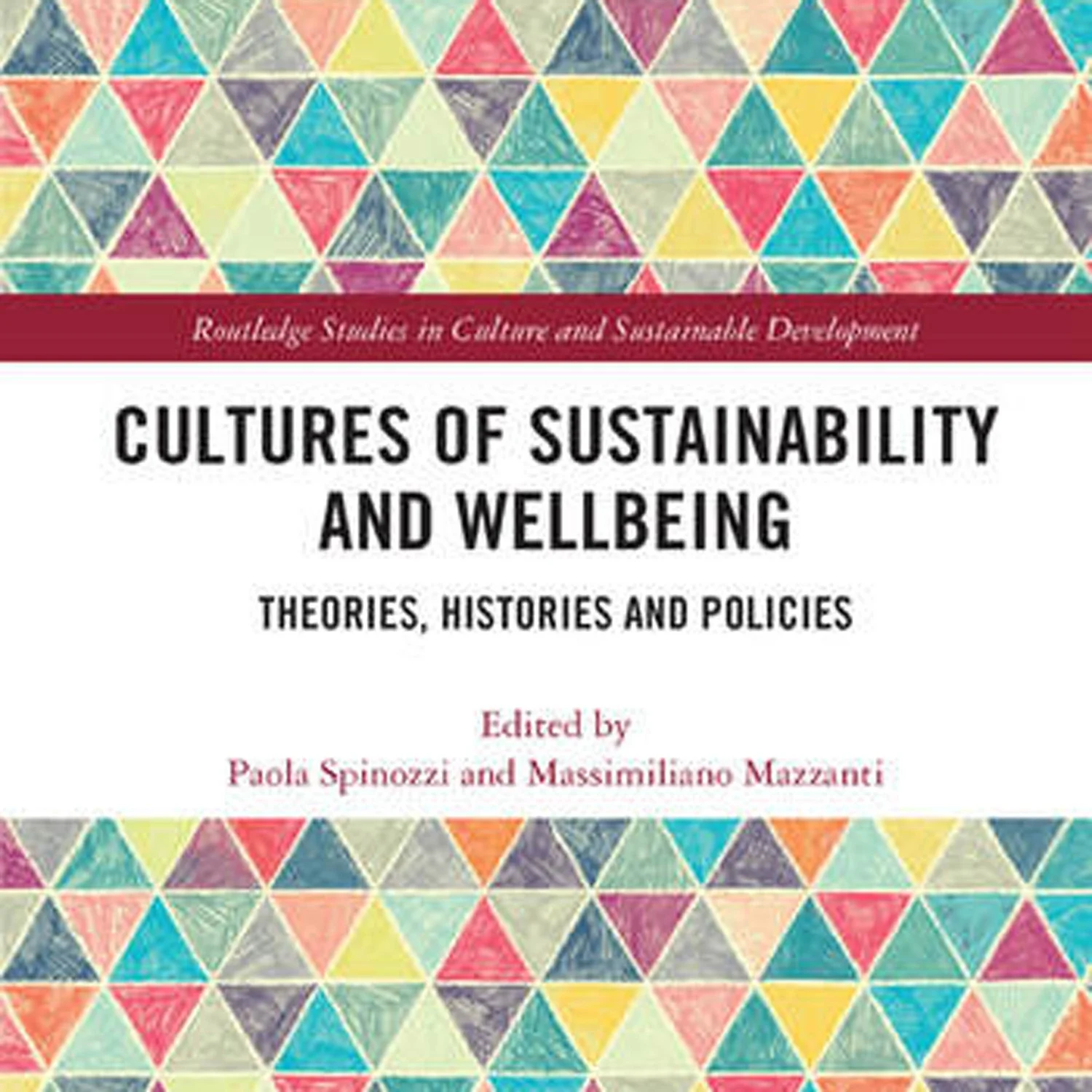
What does it mean to have an ecological mind? - PAOLA SPINOZZI
"So, to be able to develop an ecological mind, one must be ecological minded and really understand what it means to be interdependent and interconnected. So that brings together every kind of species we can think of, and we need to filter this way of thinking because when we are in a natural environment, we feel energized and uplifted. But how long does it last? And what do we do with it? To me, ecological mindedness, the topic of ECHIC (European Consortium for Humanities Institutes and Centres) is exactly this: being committed, developing a commitment towards the environment and towards well-being. It's only when we are really interdependent that we can thrive. And this was the core of this conference from various perspectives in an attempt to foster an interdisciplinary dialogue."Paola Spinozzi is Professor of English Literature at the University of Ferrara and currently serves as Pro-Vice-Chancellor for Internationalisation. She is the coordinator of the PhD Programme in Environmental Sustainability and Wellbeing and the co-coordinator of Routes towards Sustainability. Her research encompasses the ecological humanities and ecocriticism, utopia and sustainability; literature and the visual arts; literature and science; cultural memory. She has co-edited Cultures of Sustainability and Wellbeing: Theories, Histories and Policies and published on post/apocalyptic and climate fiction, nature poetry, eco-theatre; art and aesthetics, imperialism and evolutionism in utopia as a genre; the writing of science; interart creativity.https://docente.unife.it/paola.spinozzi https://www.unife.it/studenti/dottorato/it/corsi/riforma/environmental-sustainability-and-wellbeinghttps://www.routesnetwork.net https://www.routledge.com/Cultures-of-Sustainability-and-Wellbeing-Theories-Histories-and-Policies/Spinozzi-Mazzanti/p/book/9780367271190.www.creativeprocess.infowww.oneplanetpodcast.orgIG www.instagram.com/creativeprocesspodcast
11:5312/03/2024





